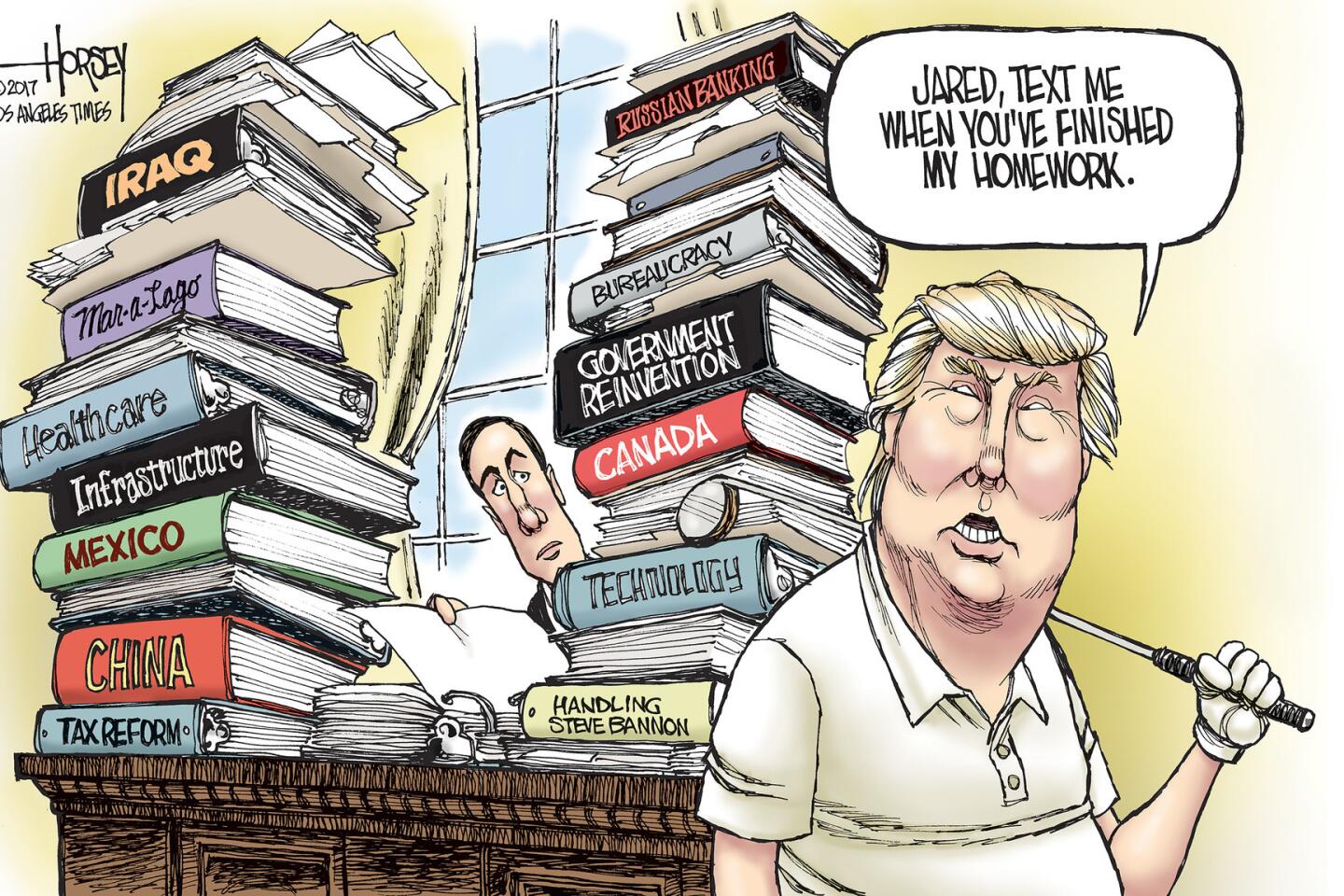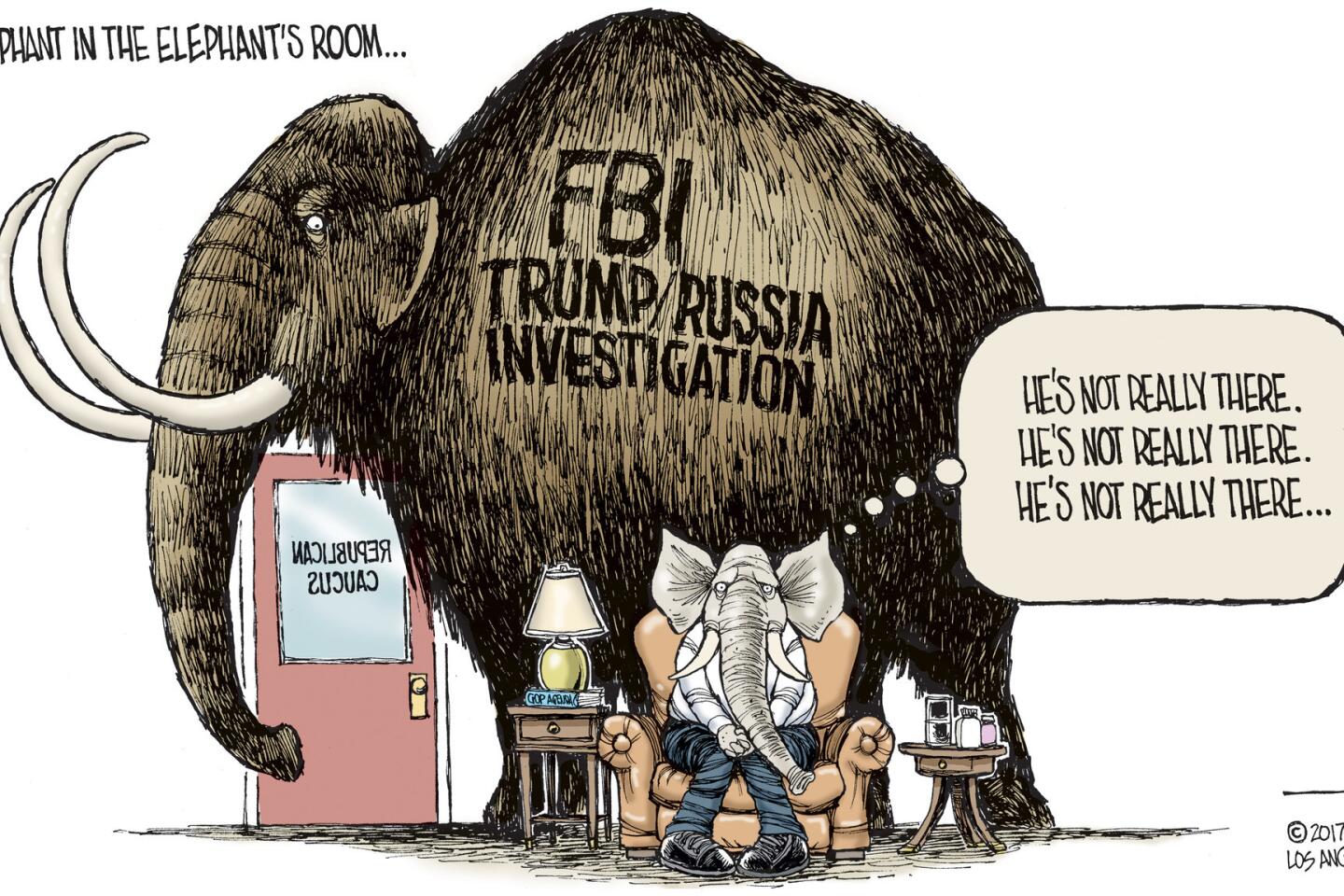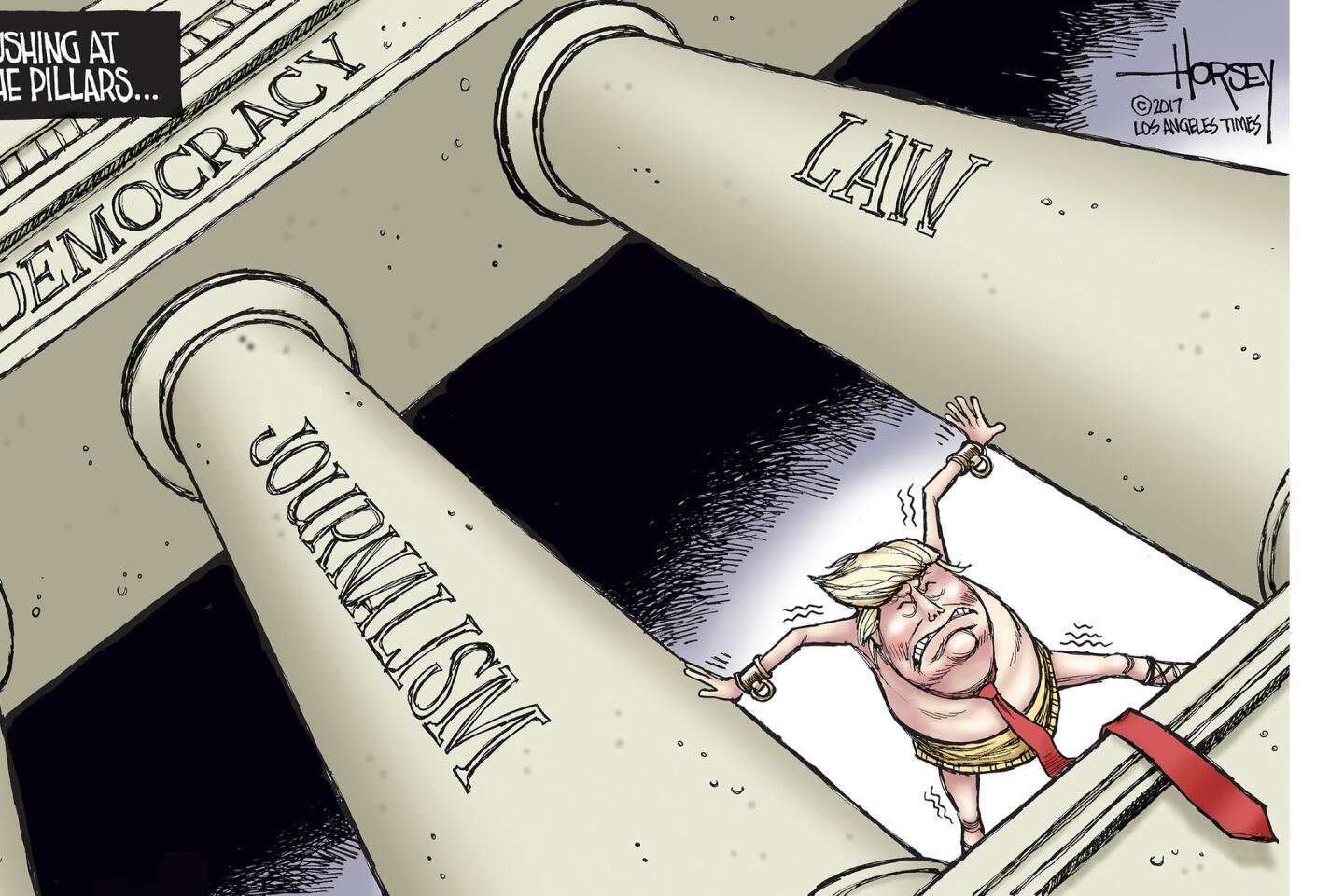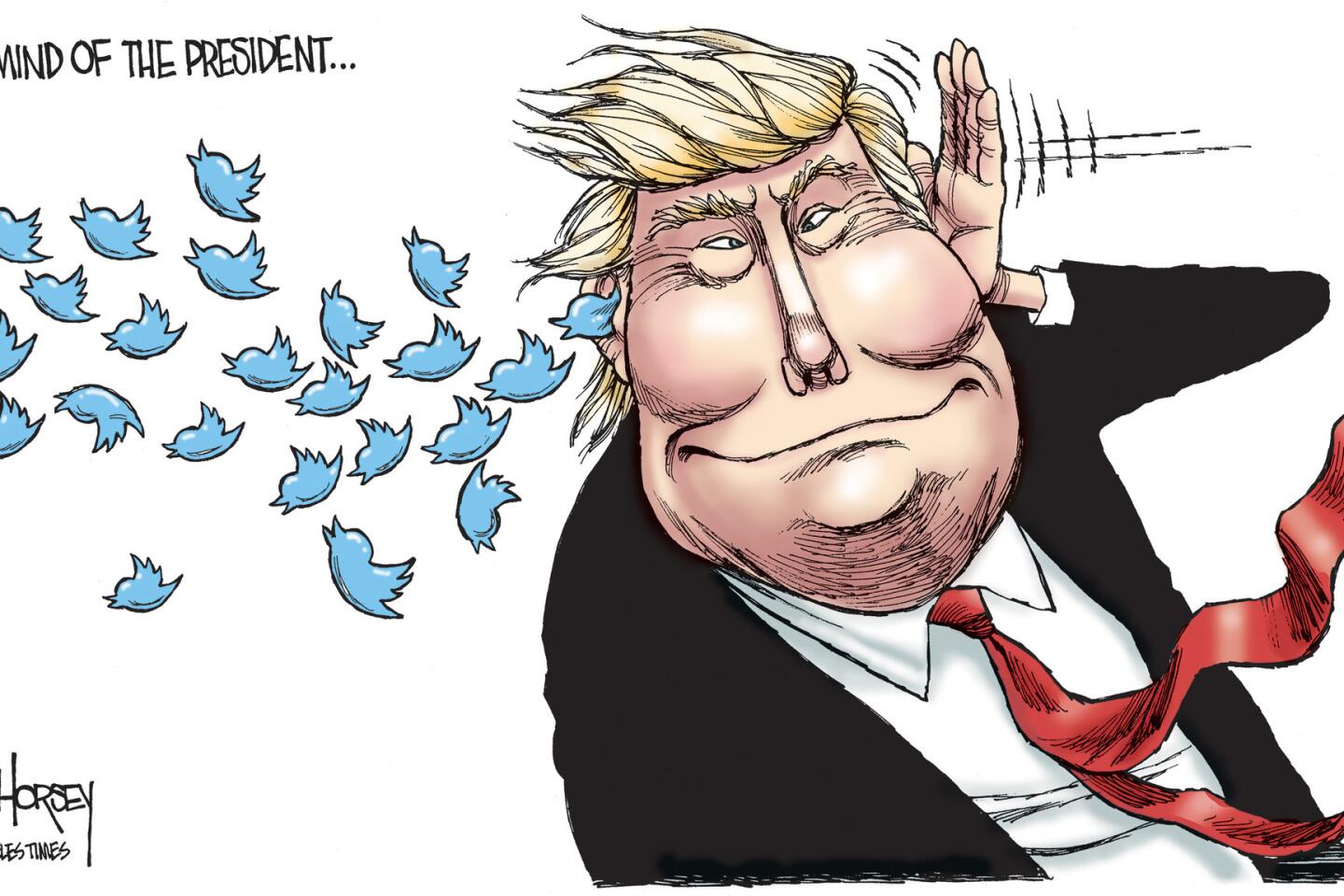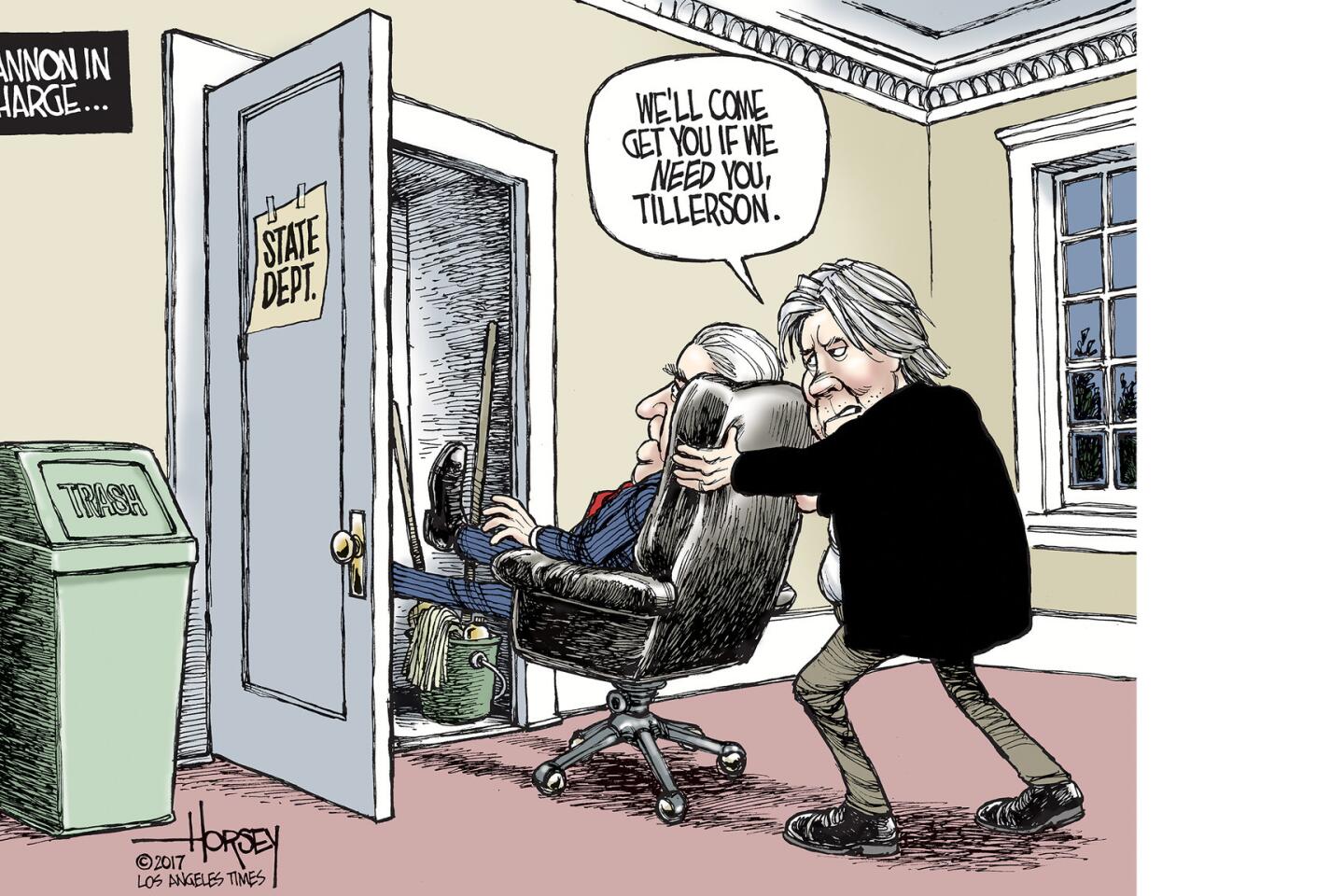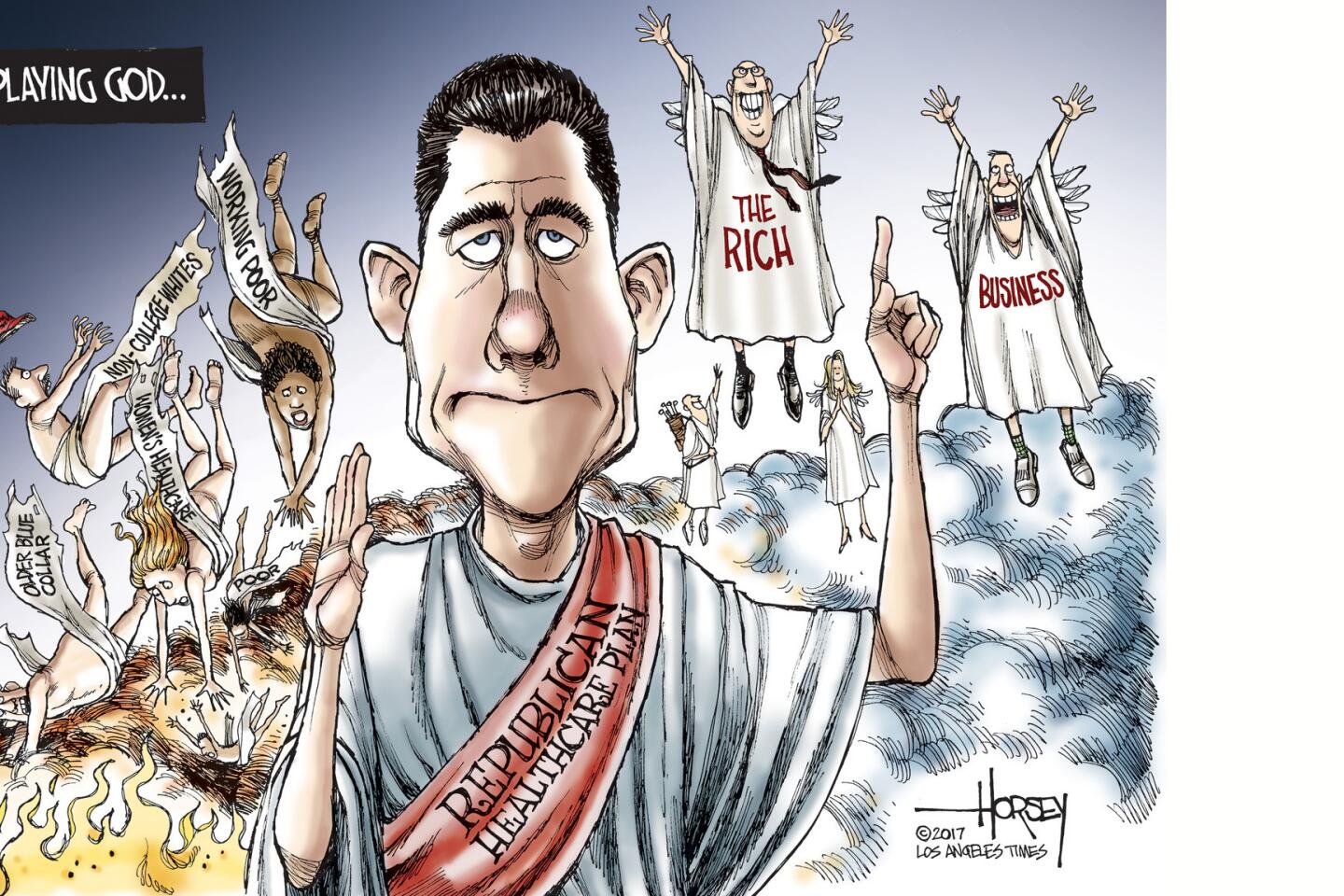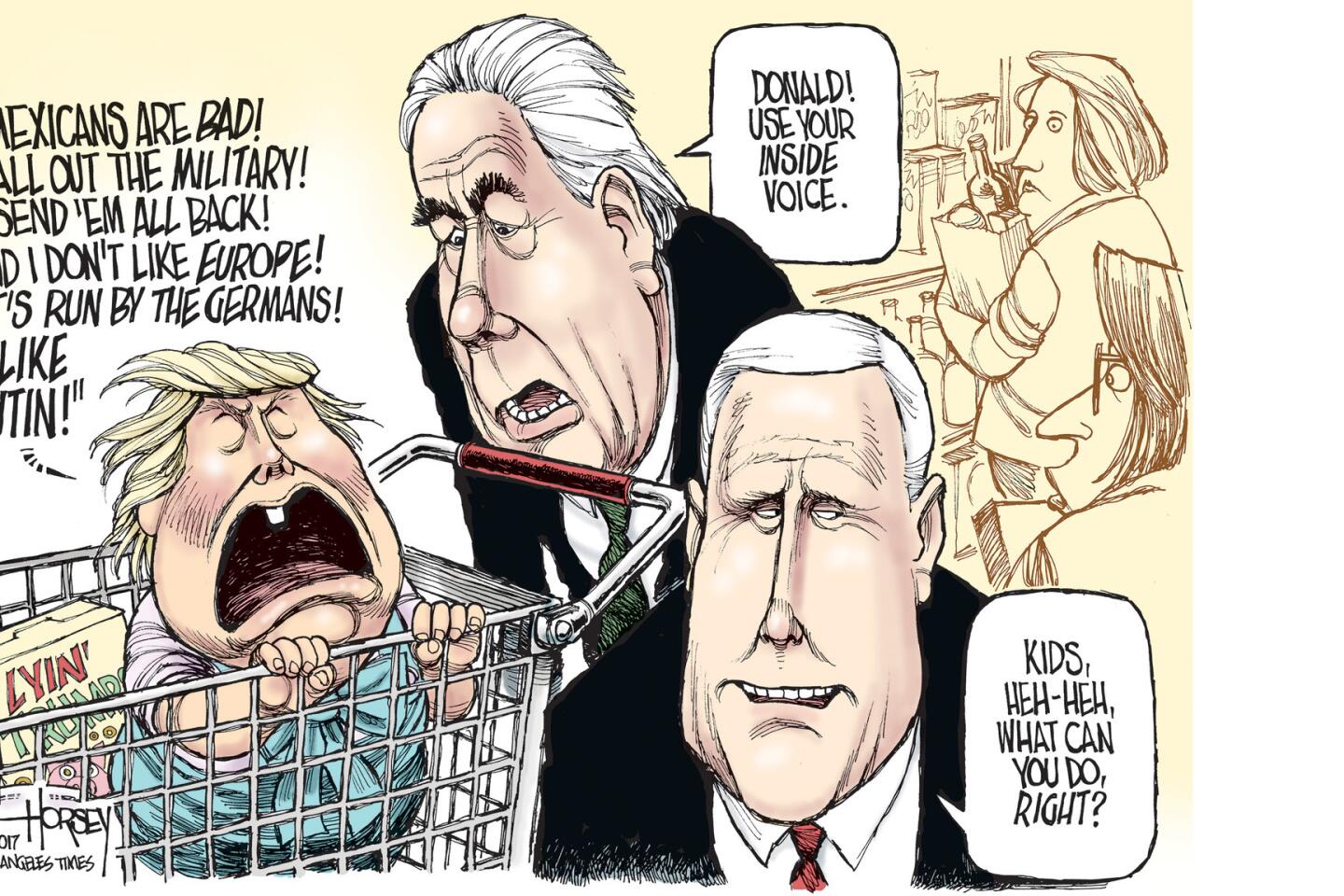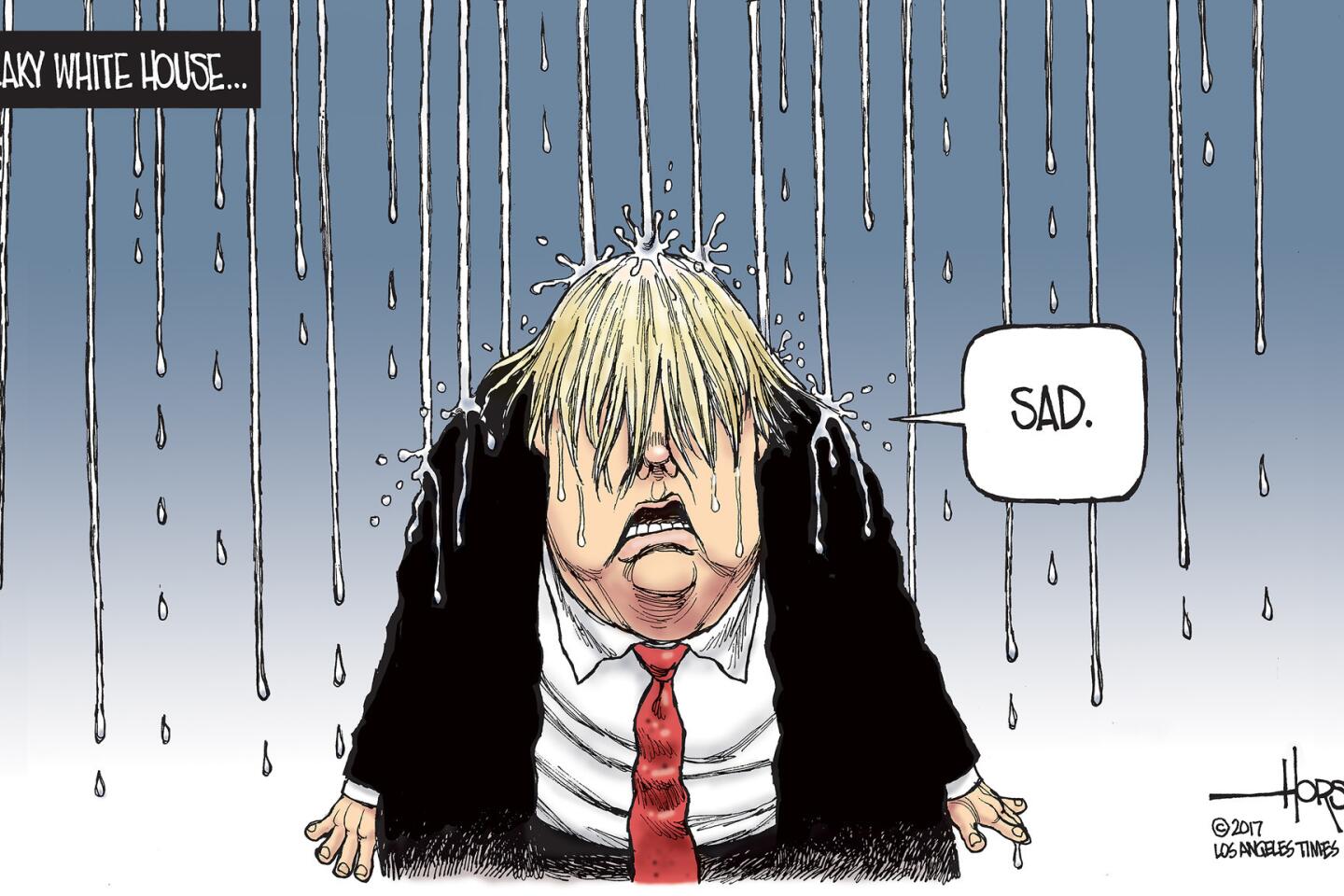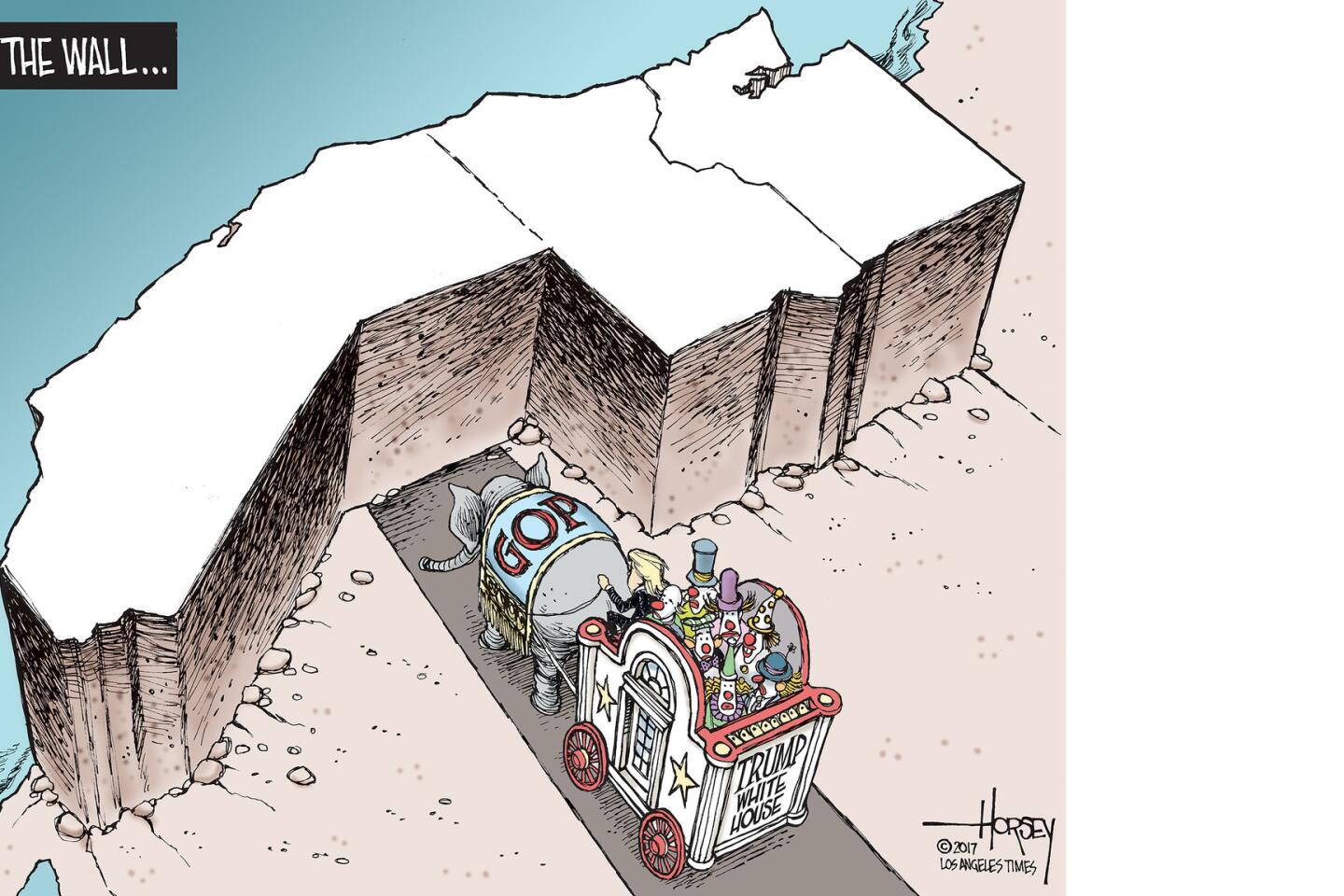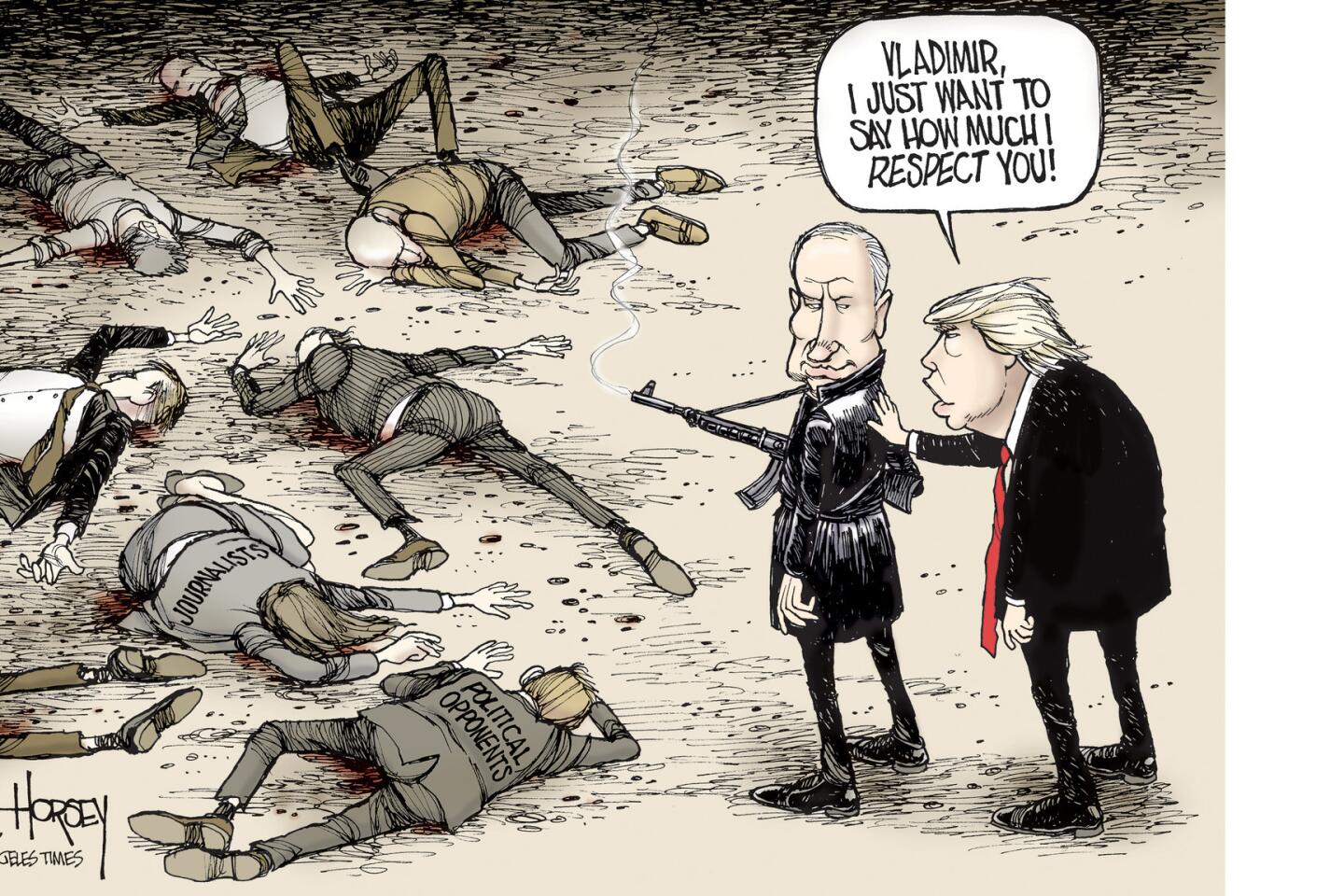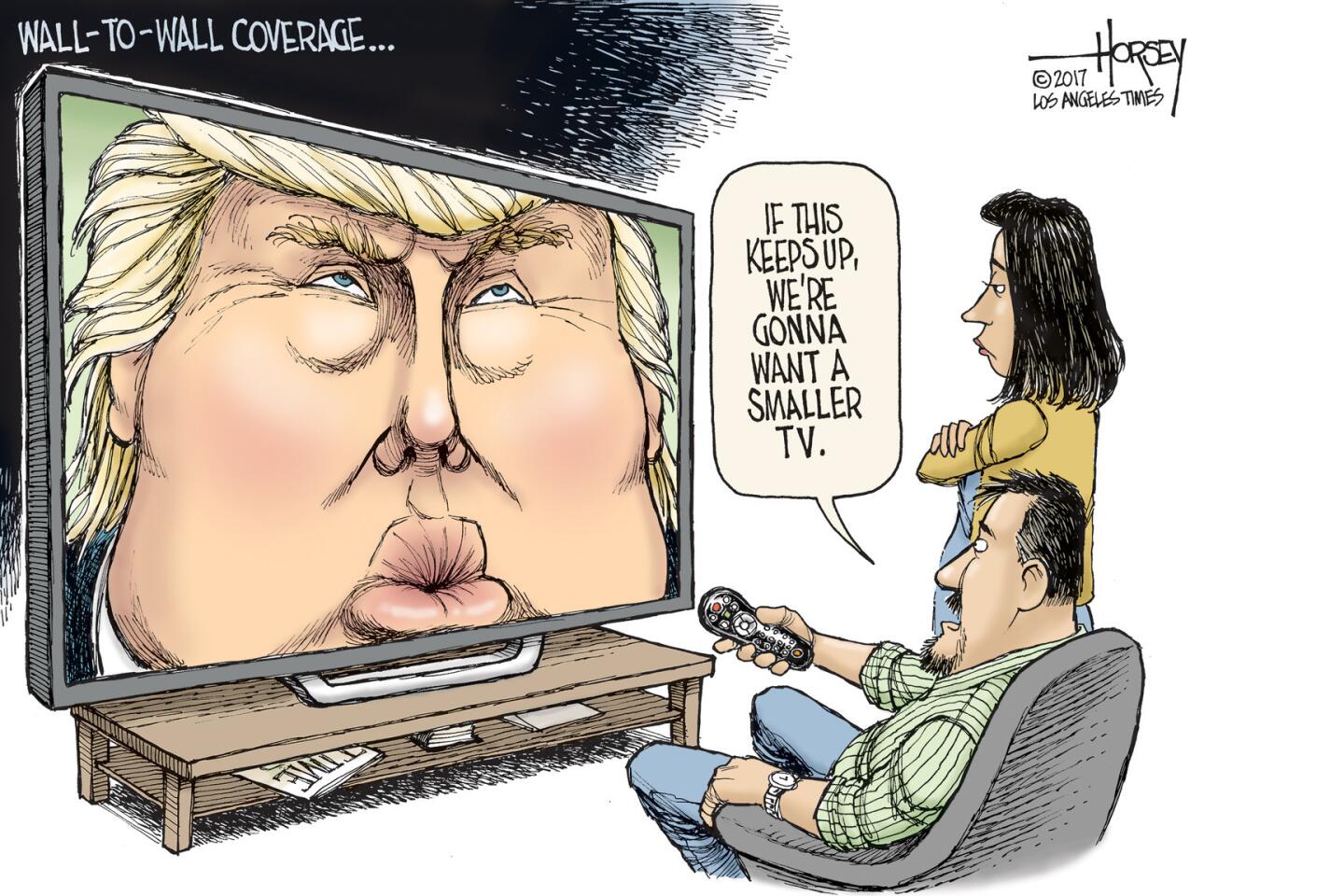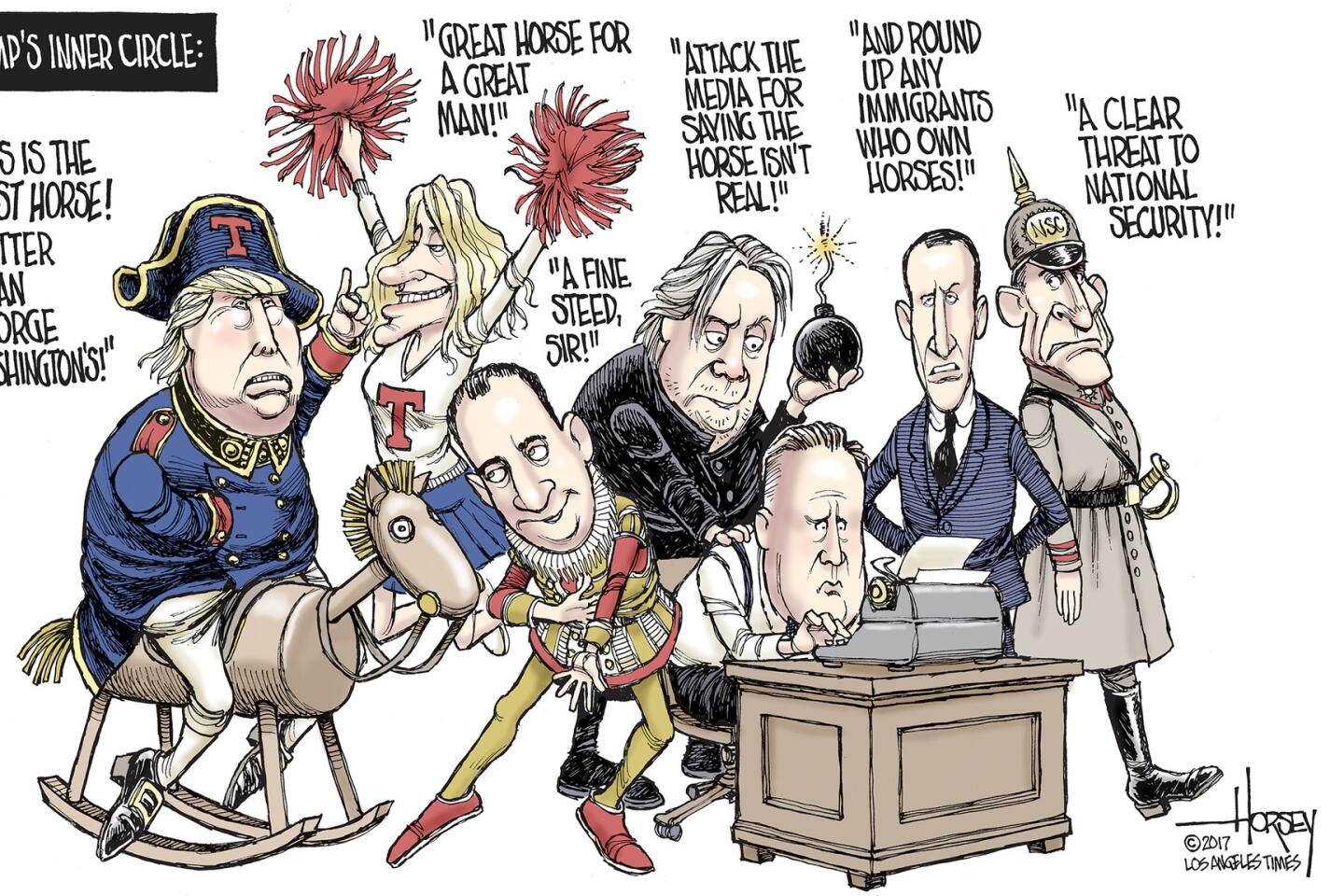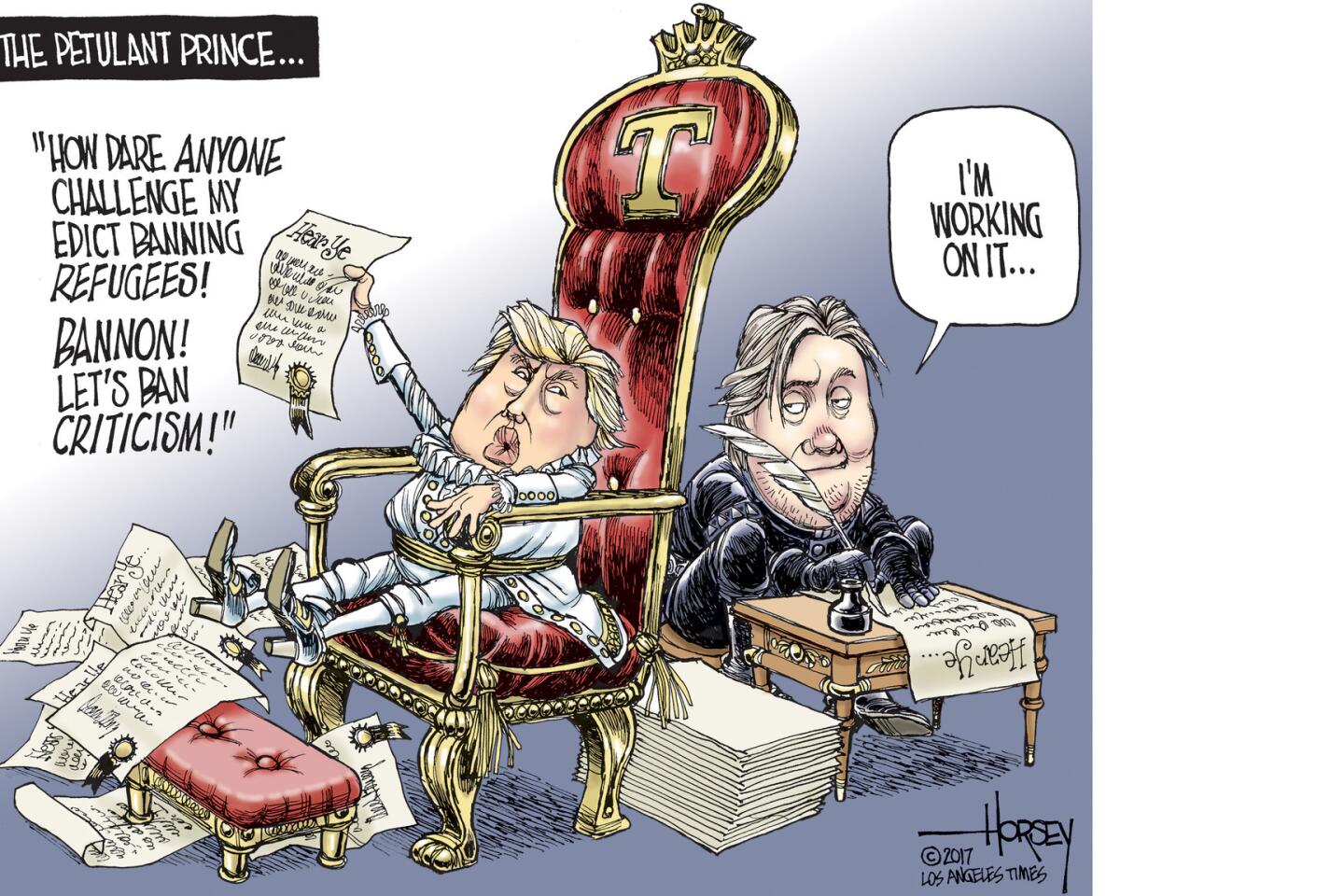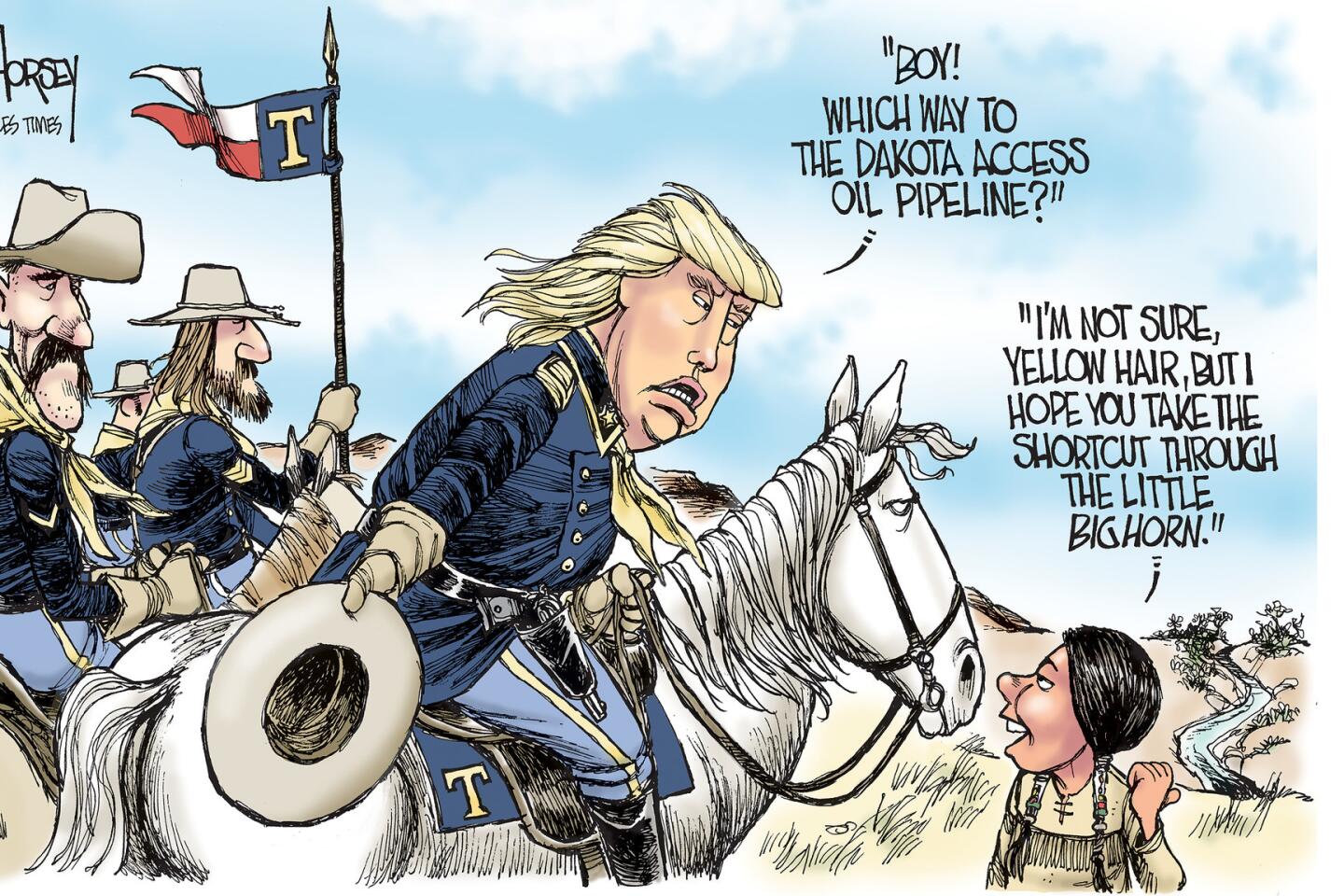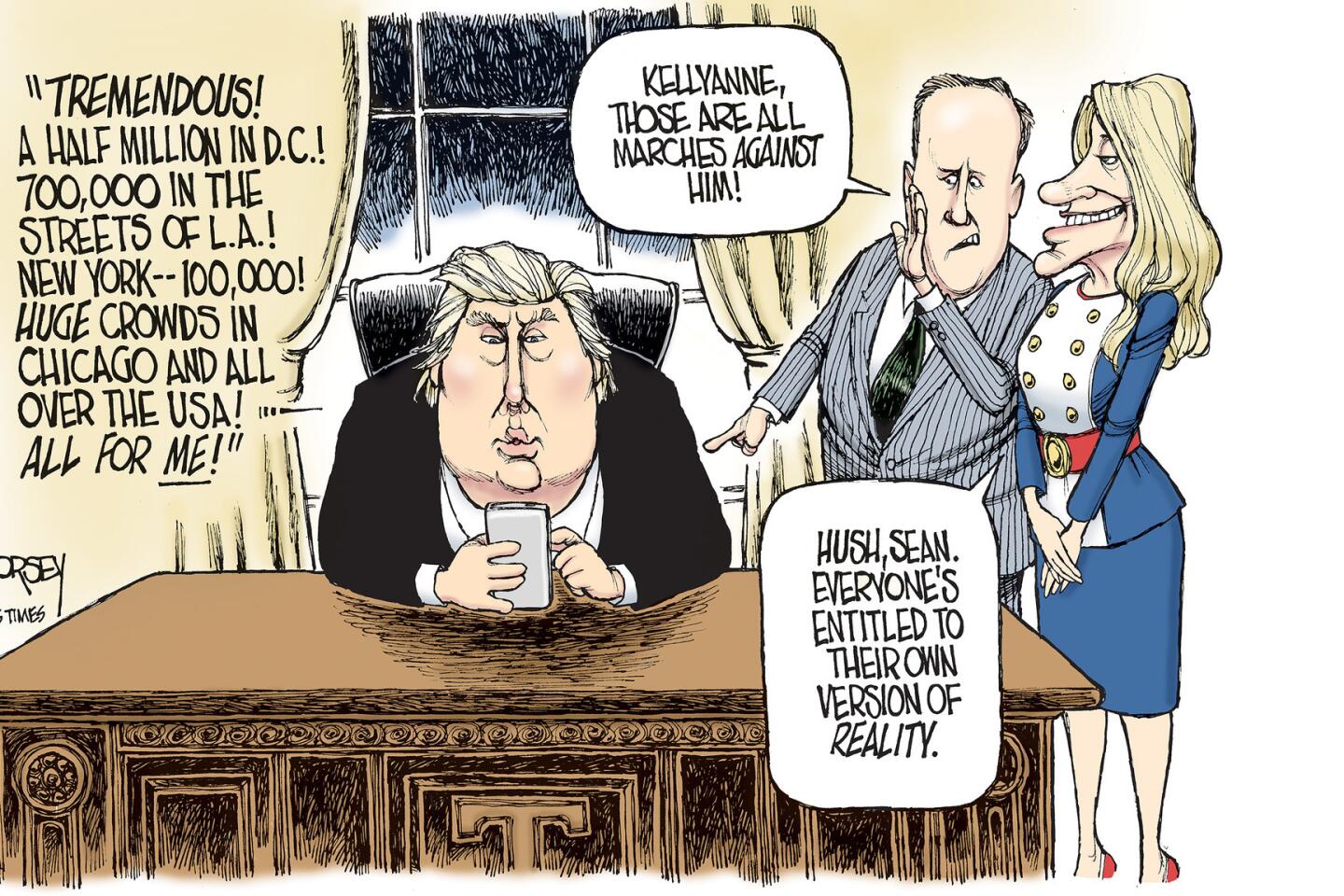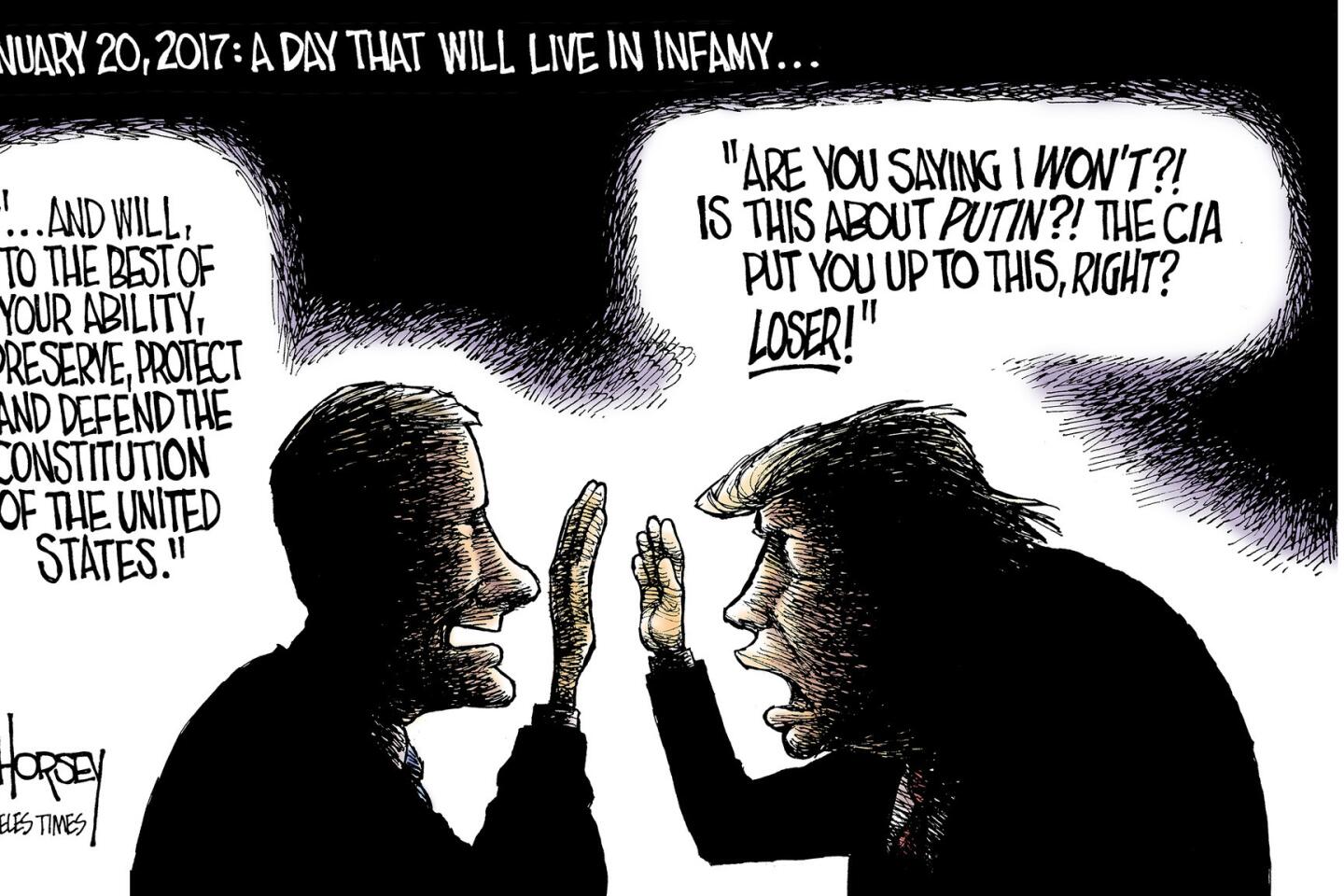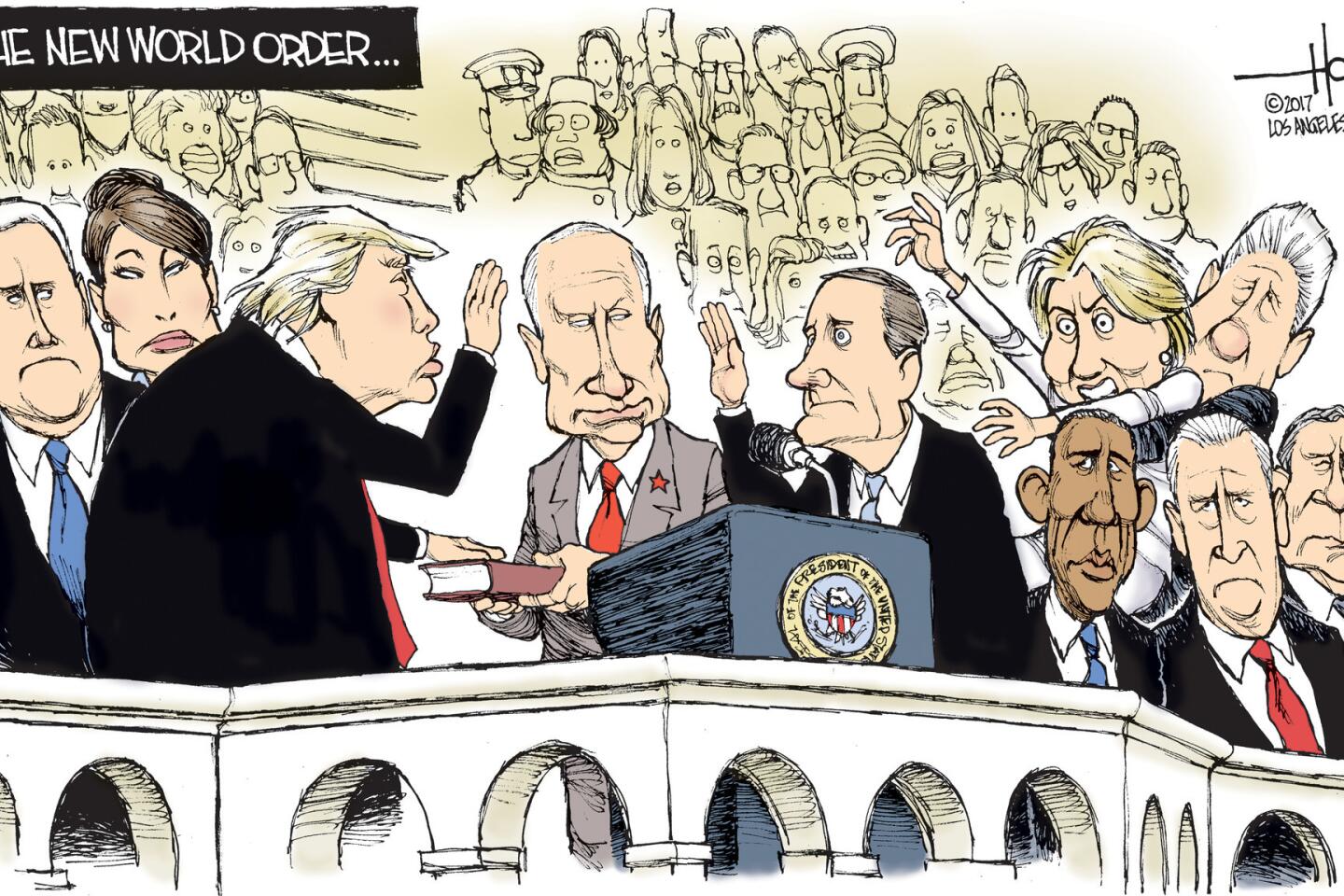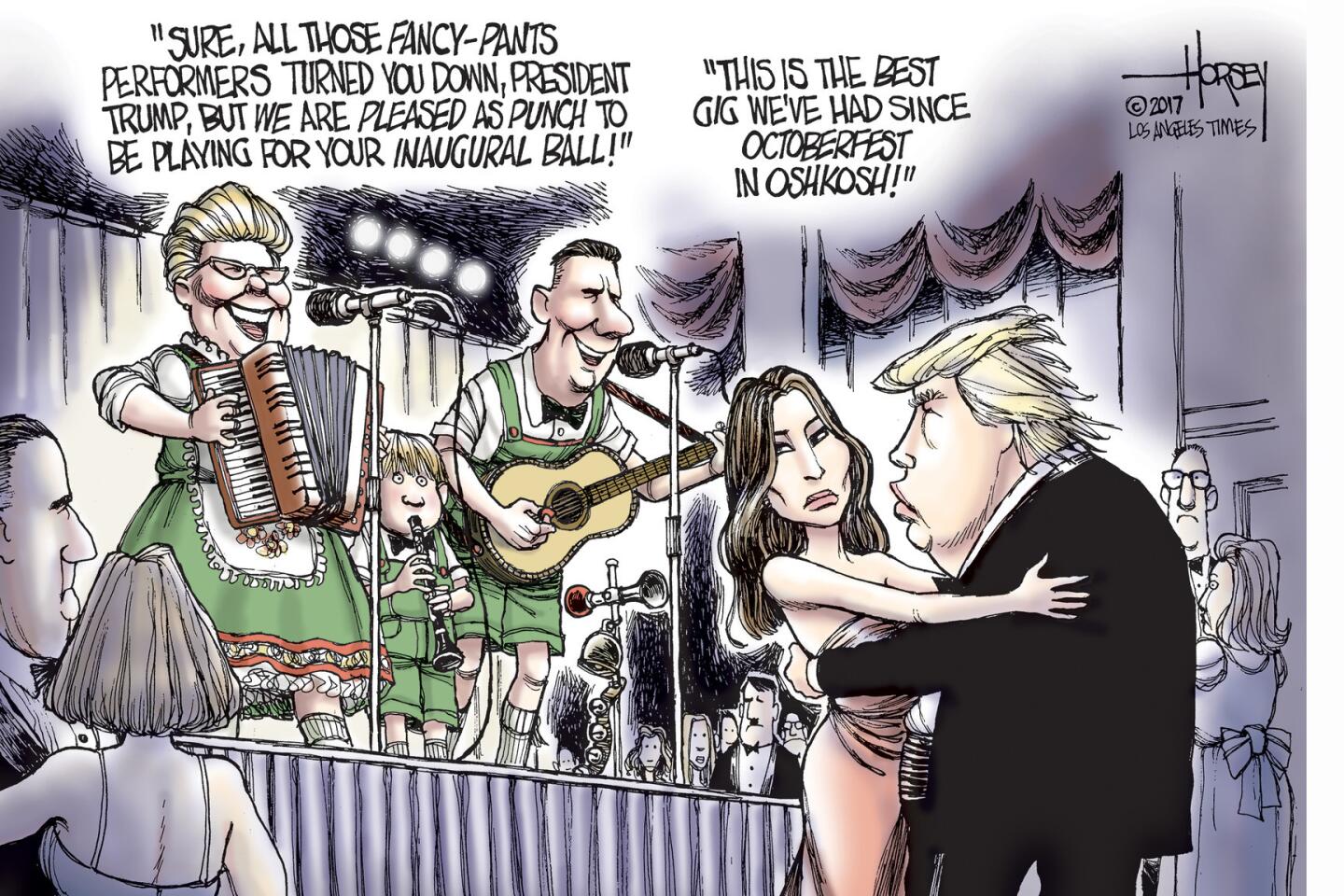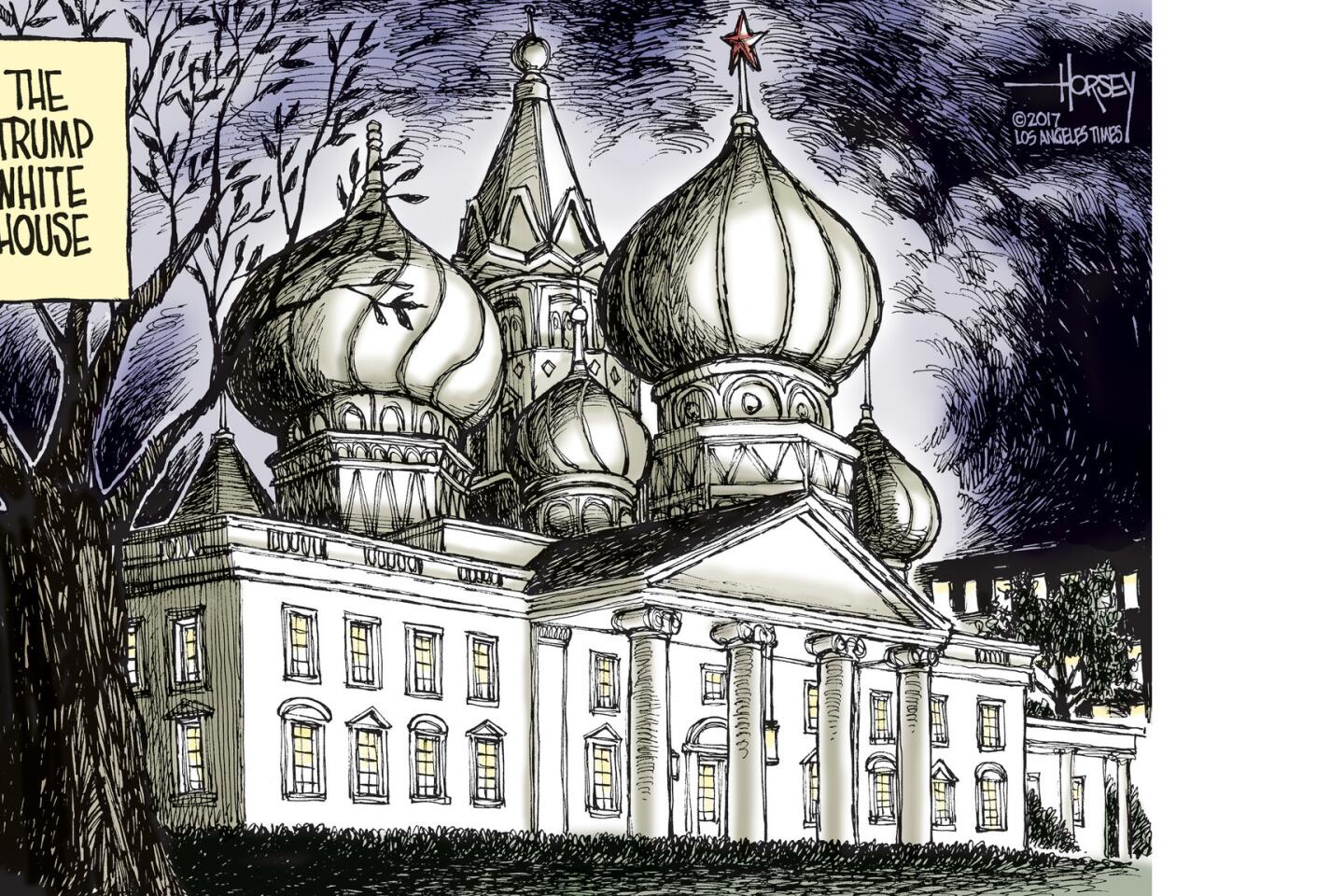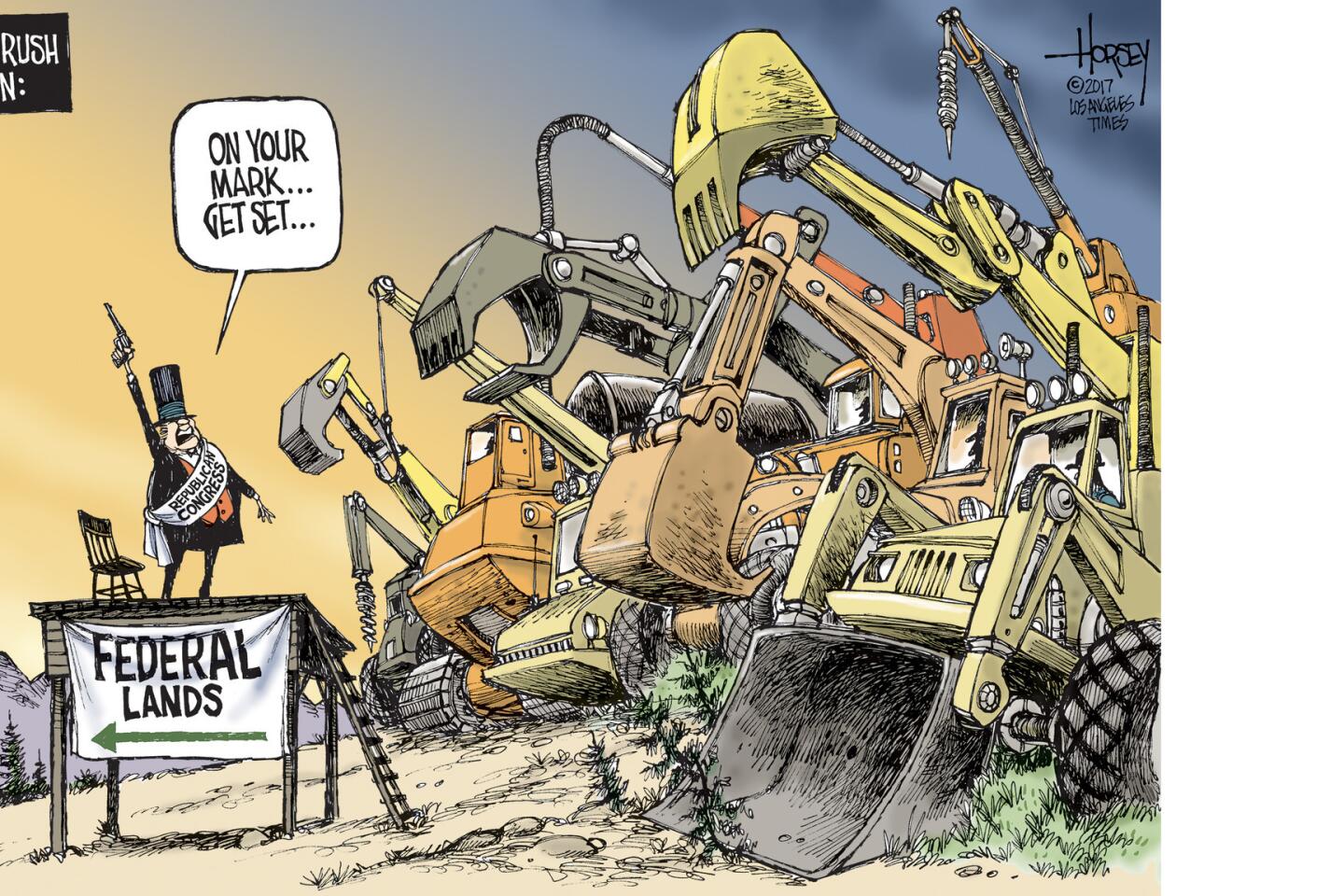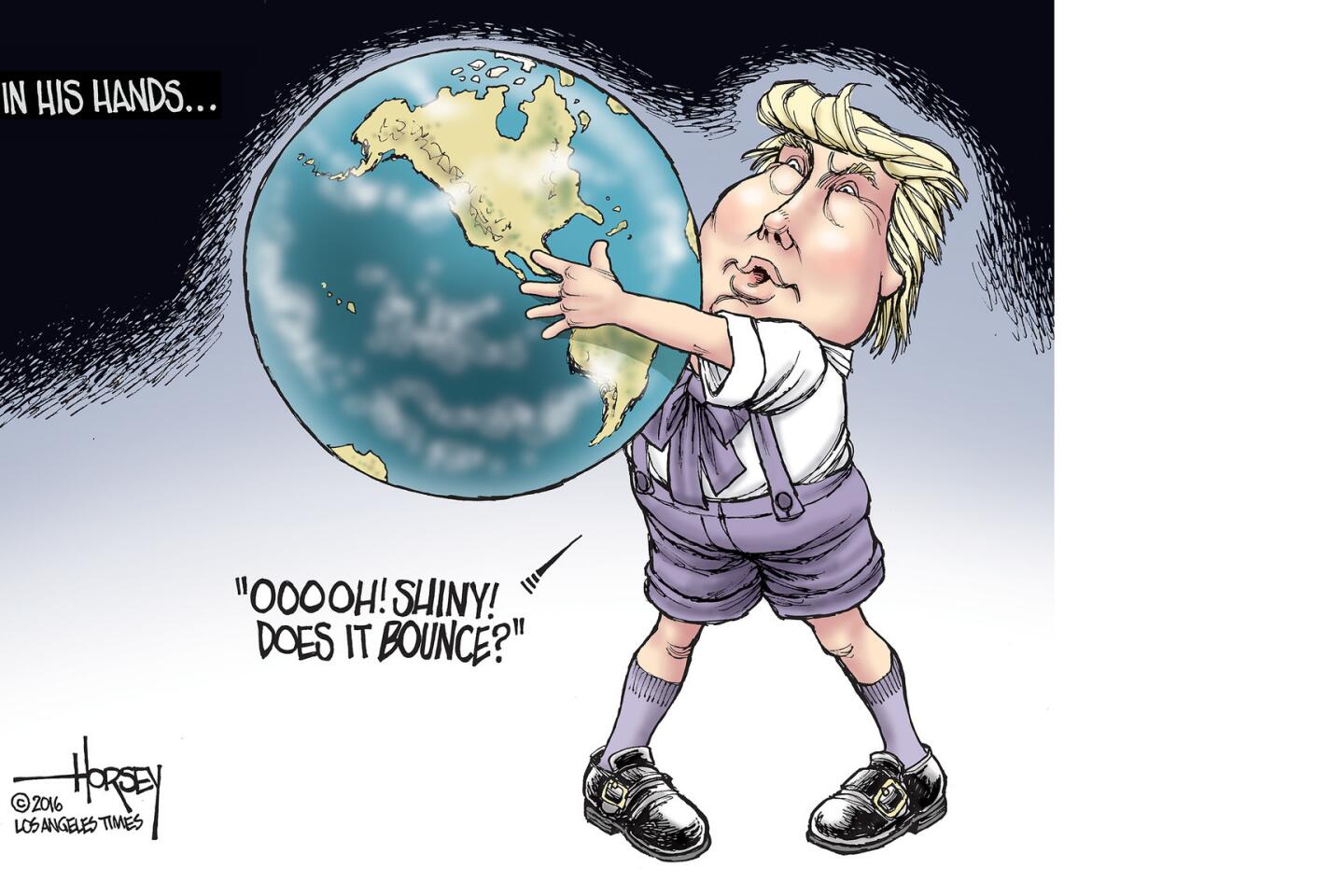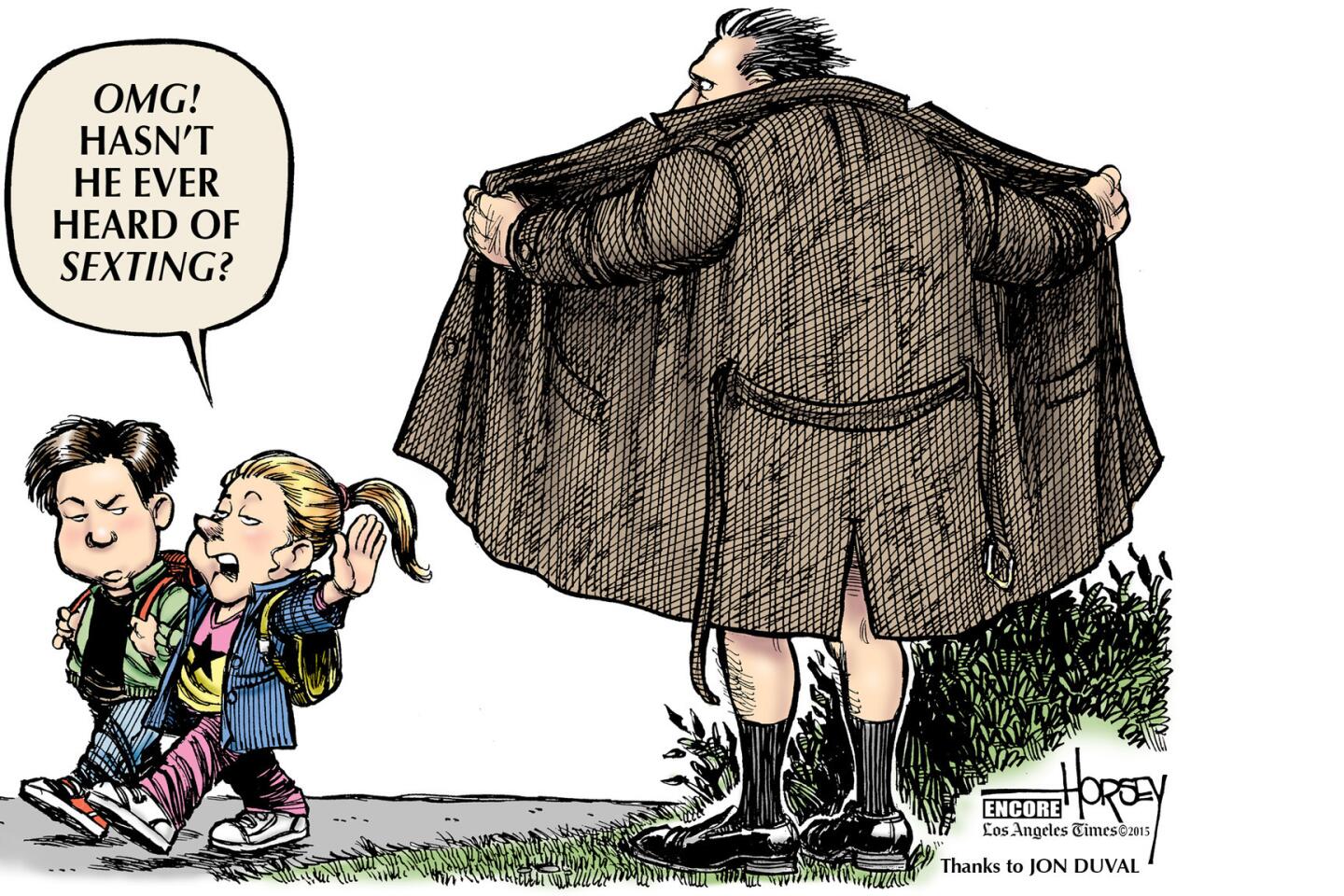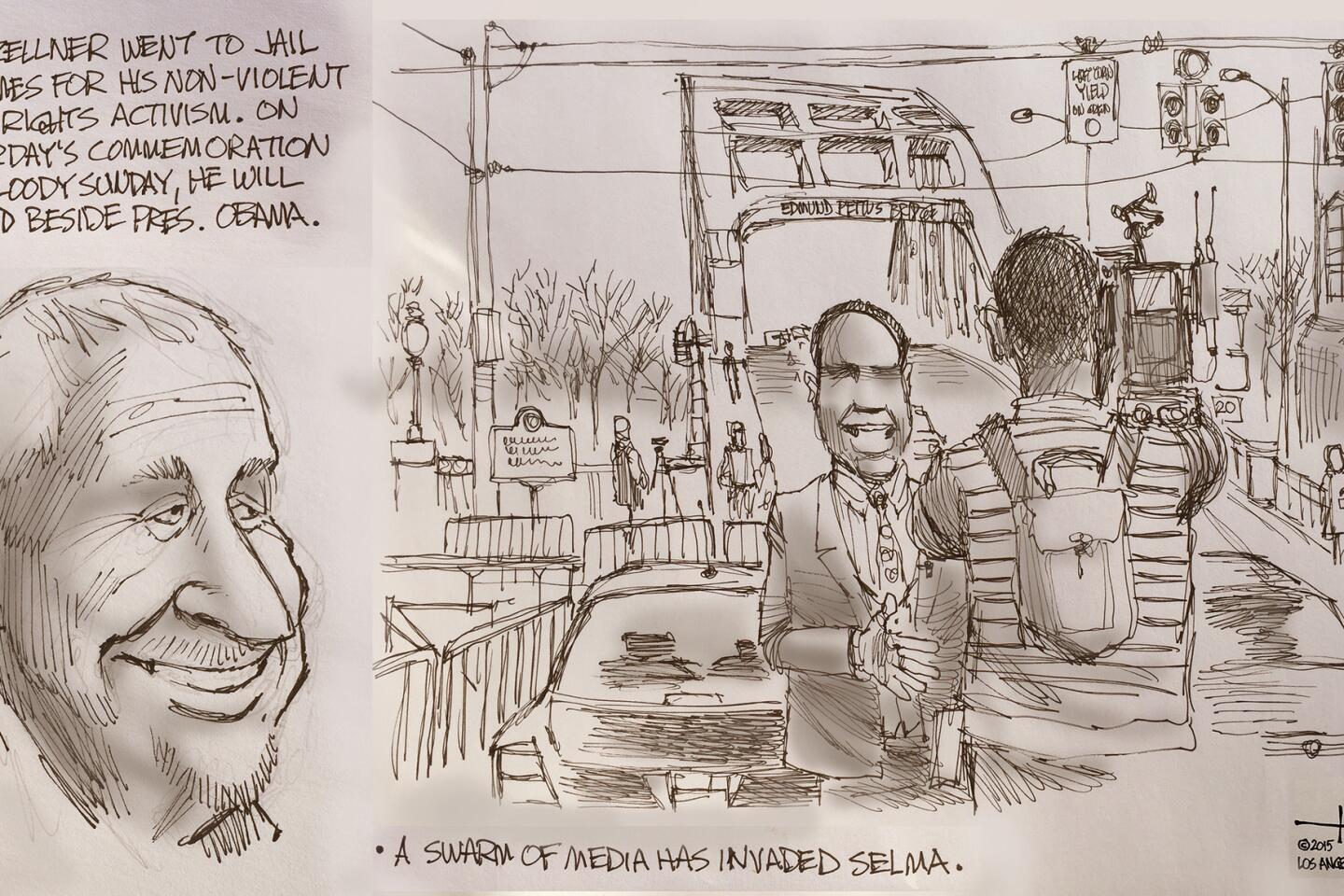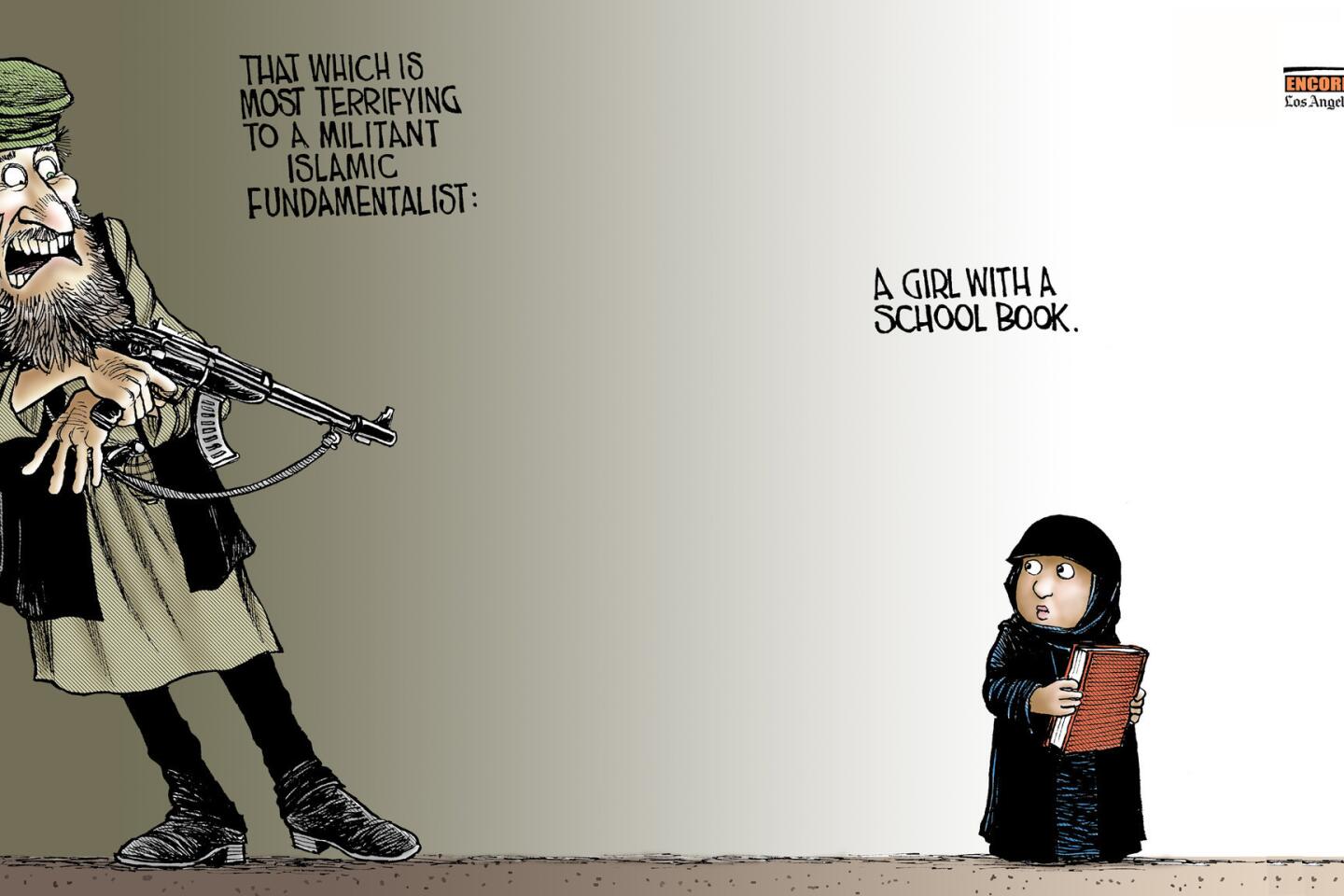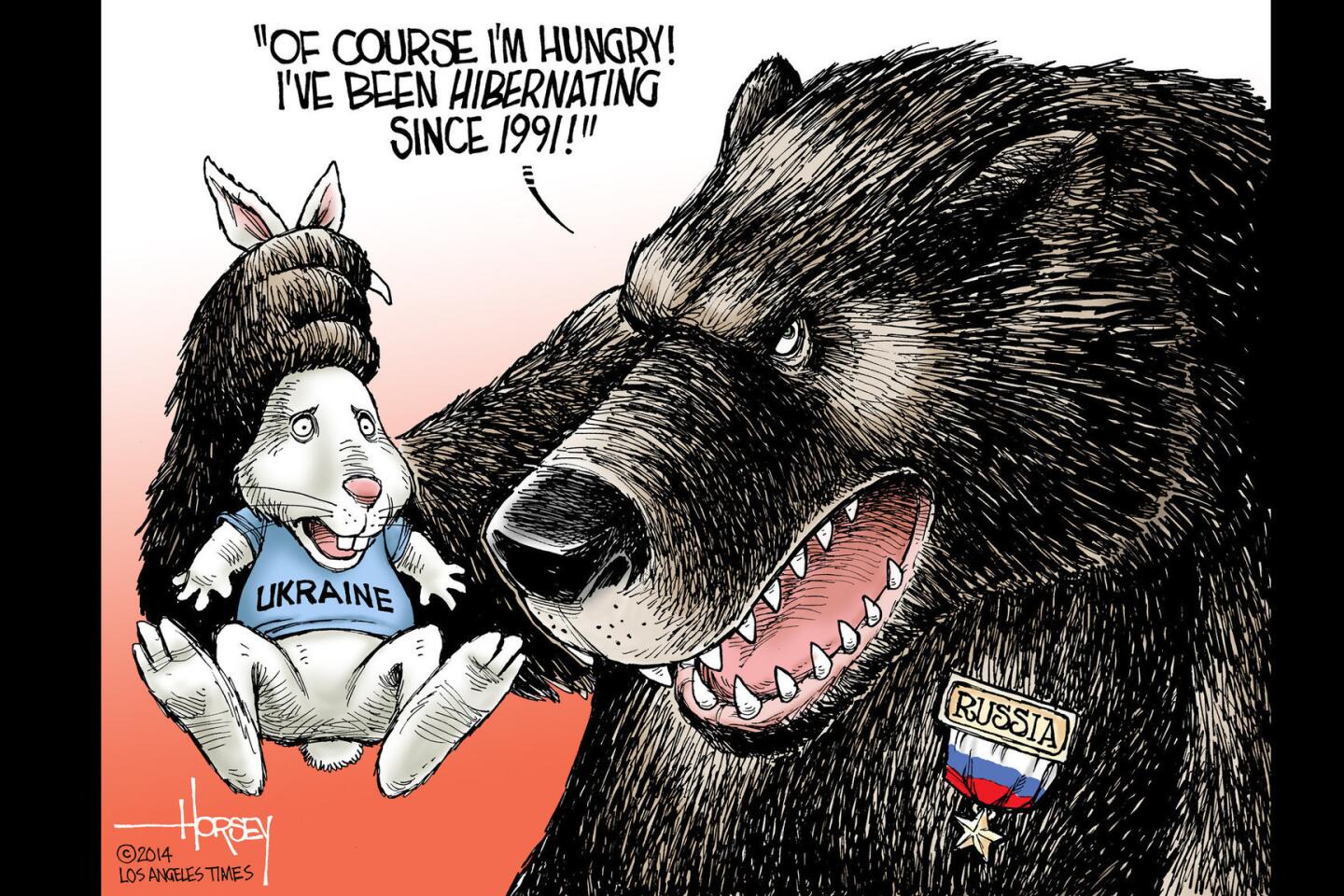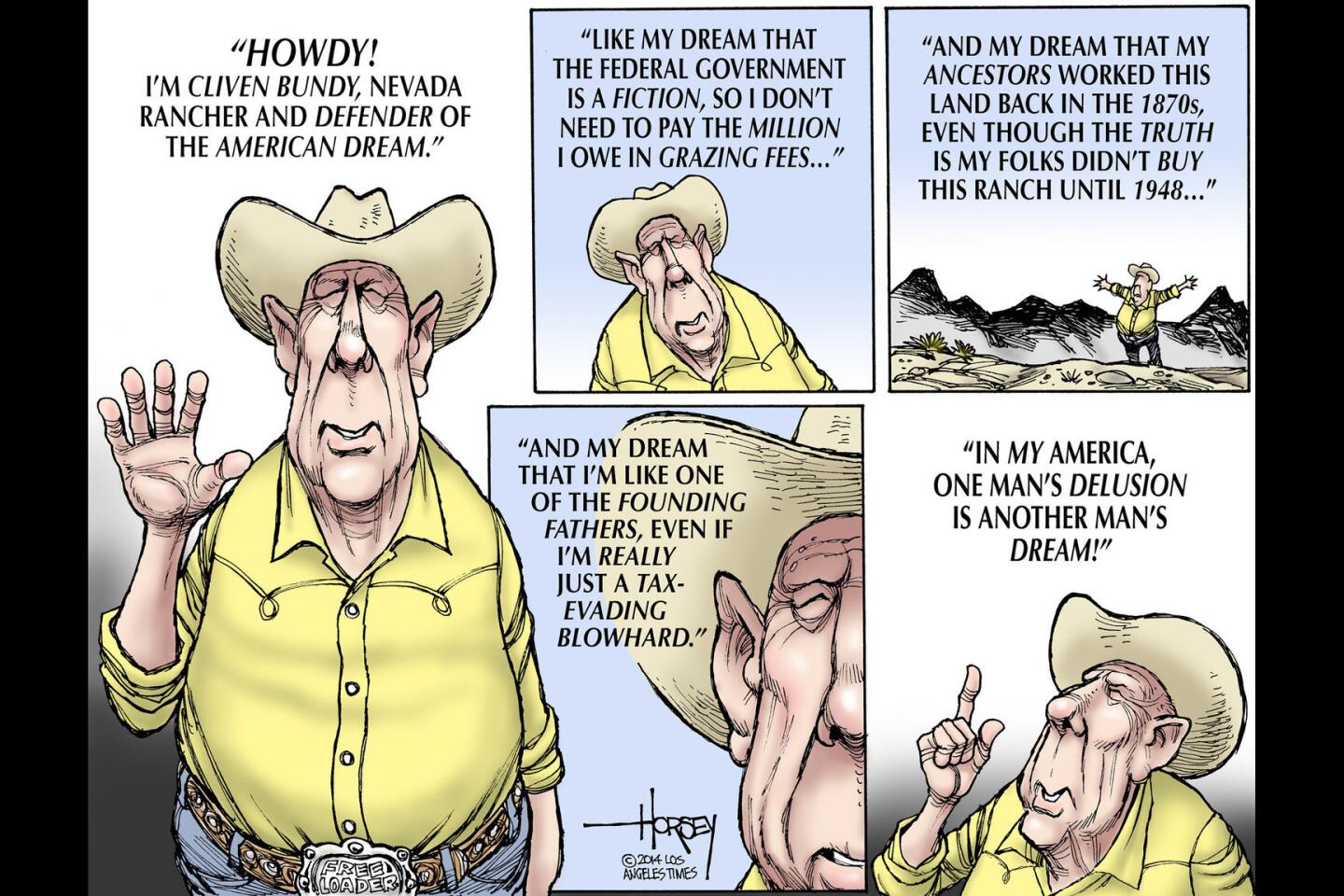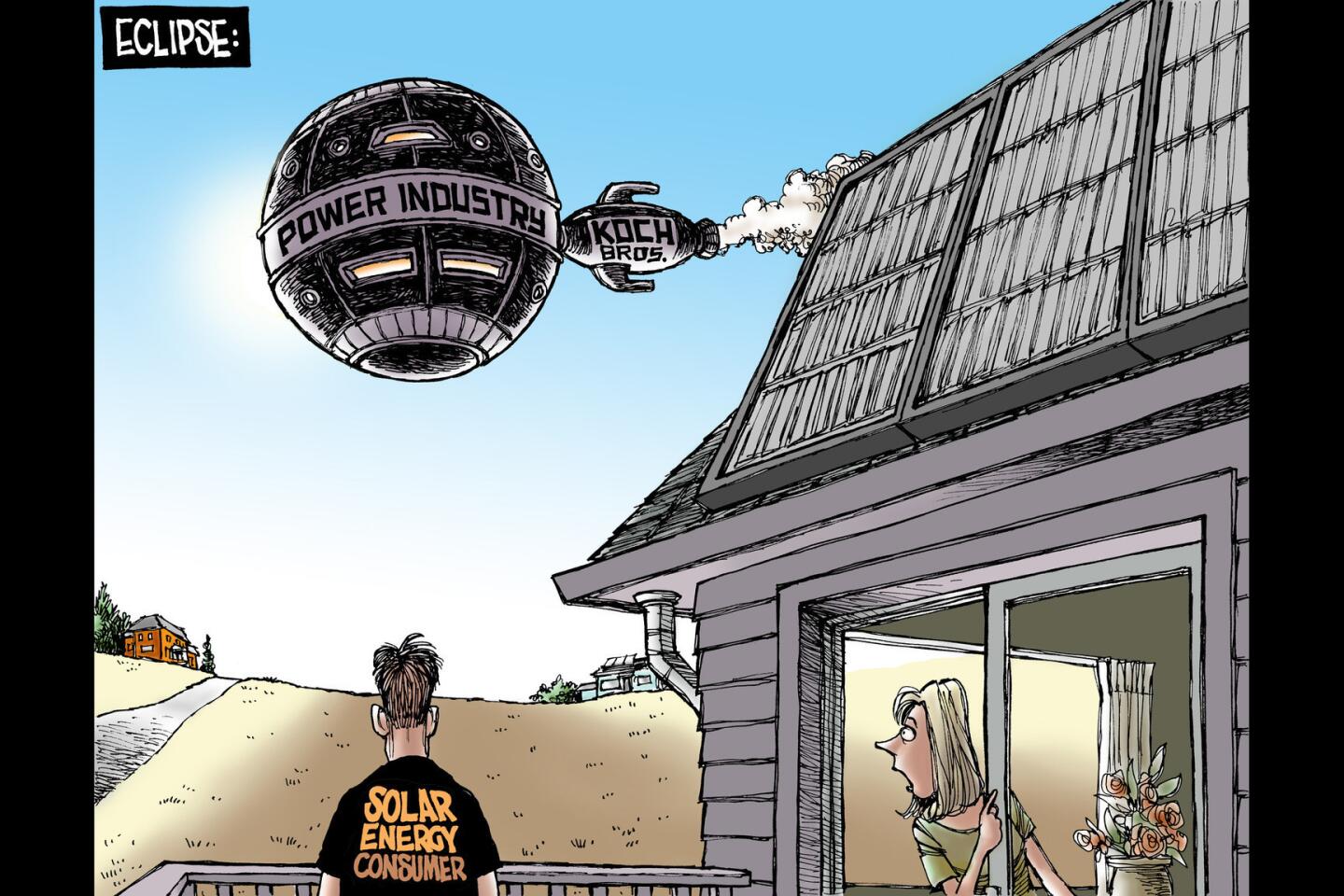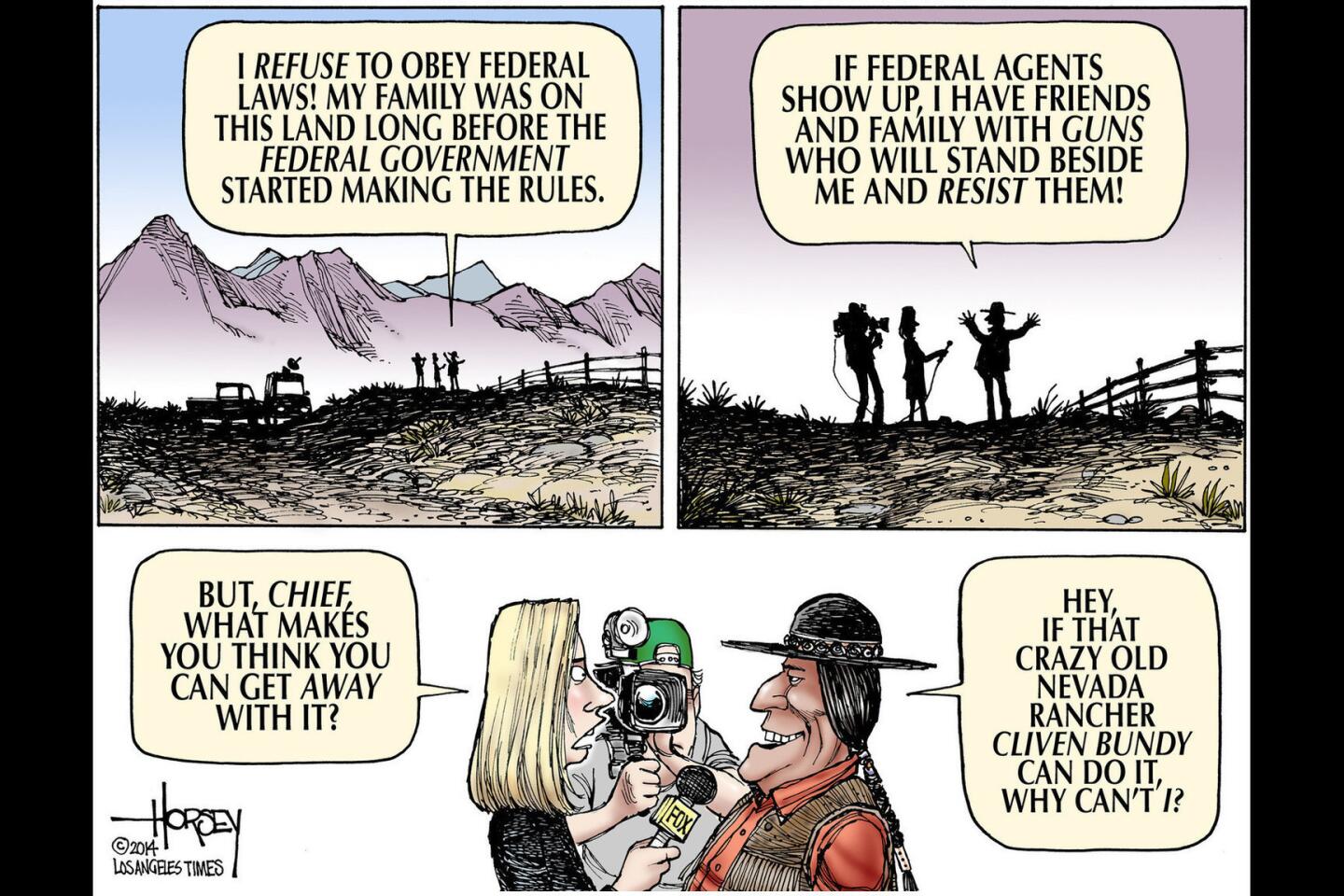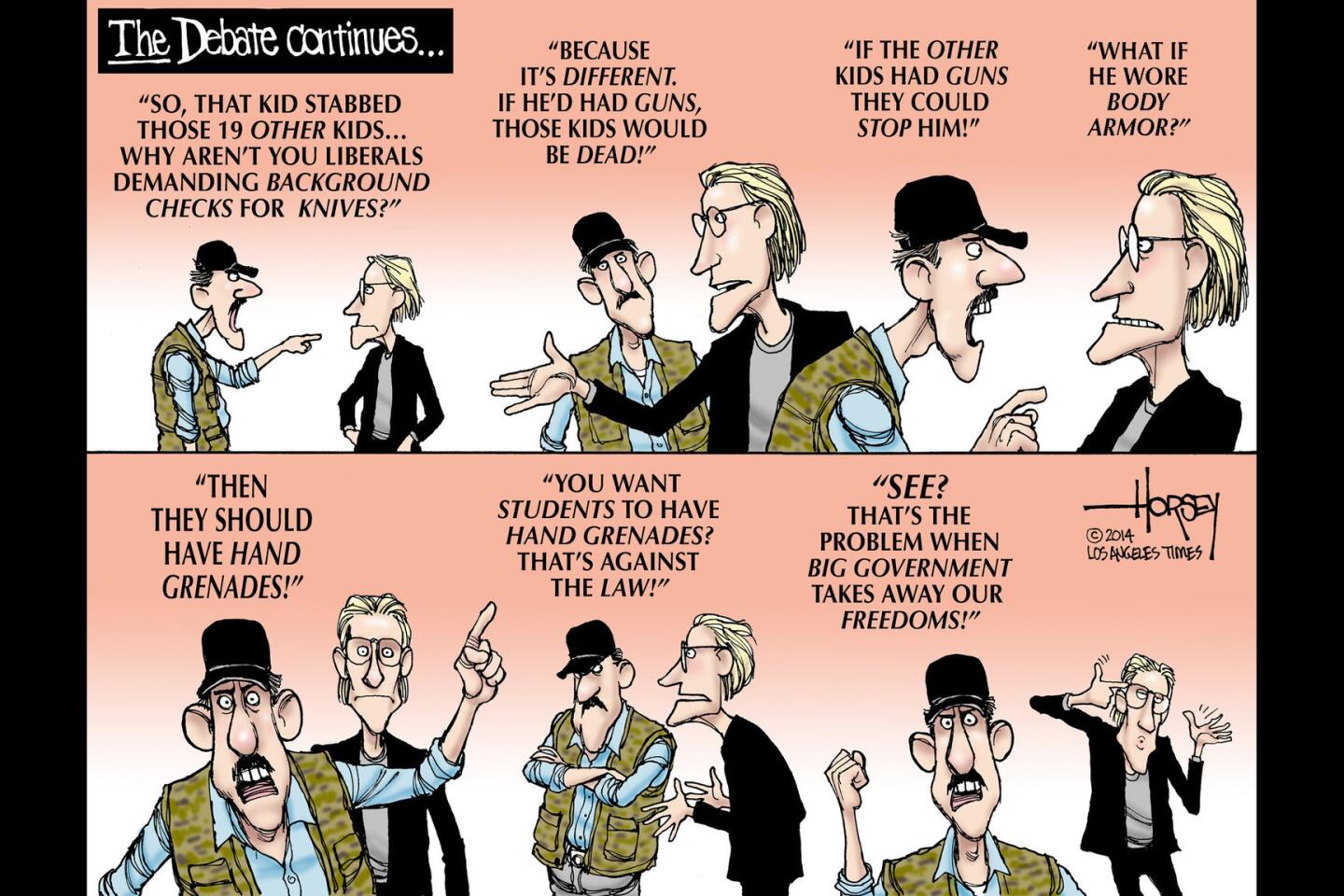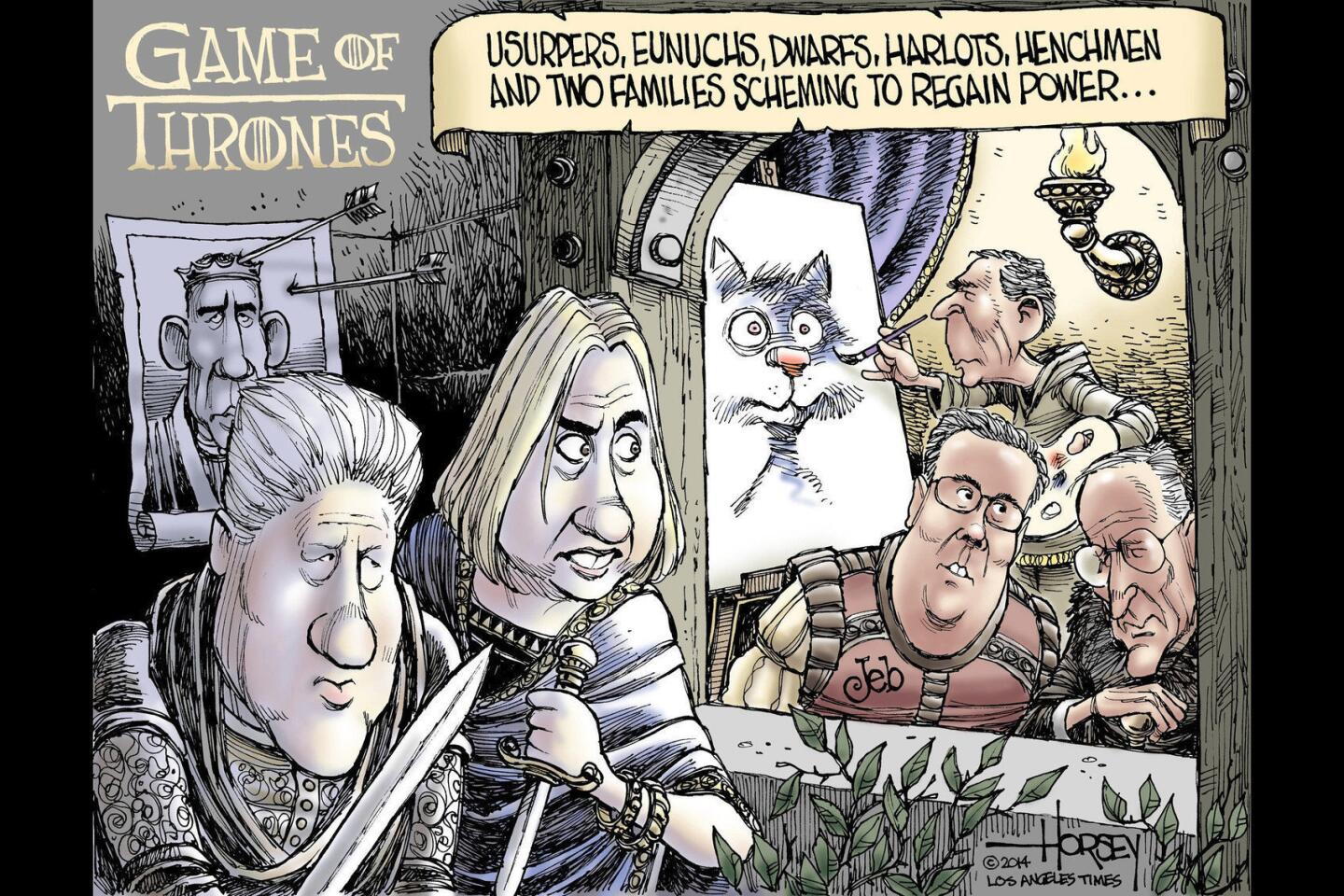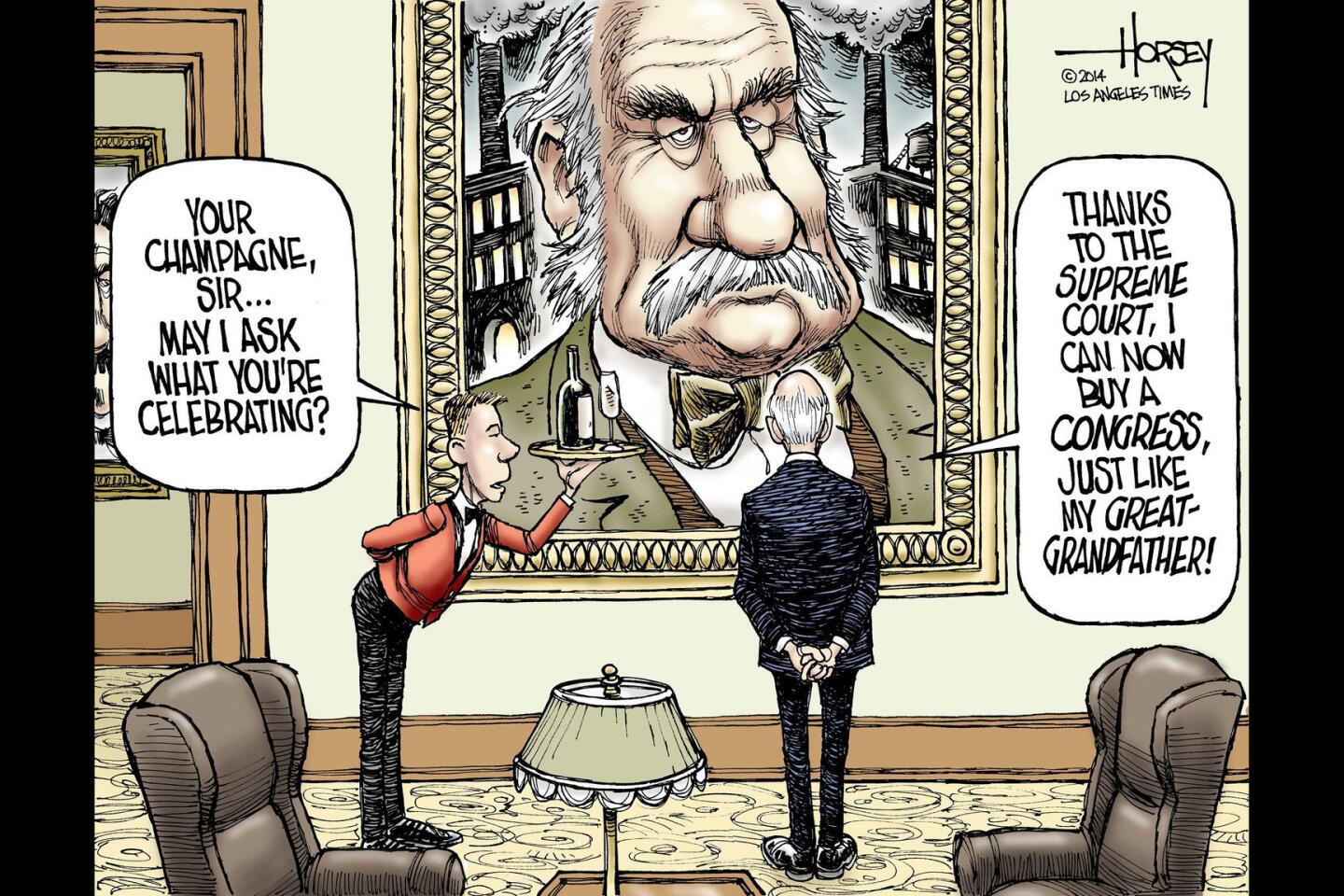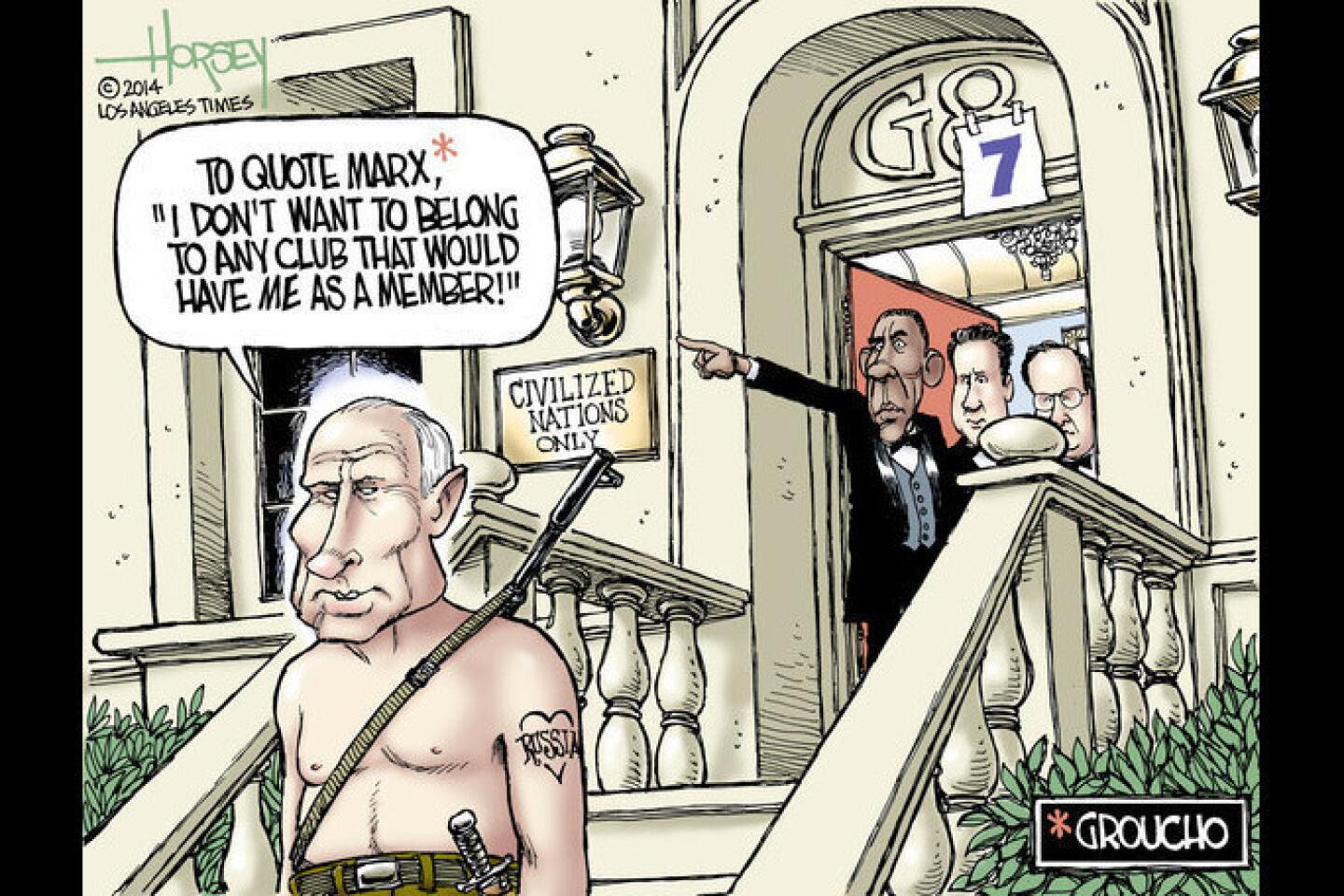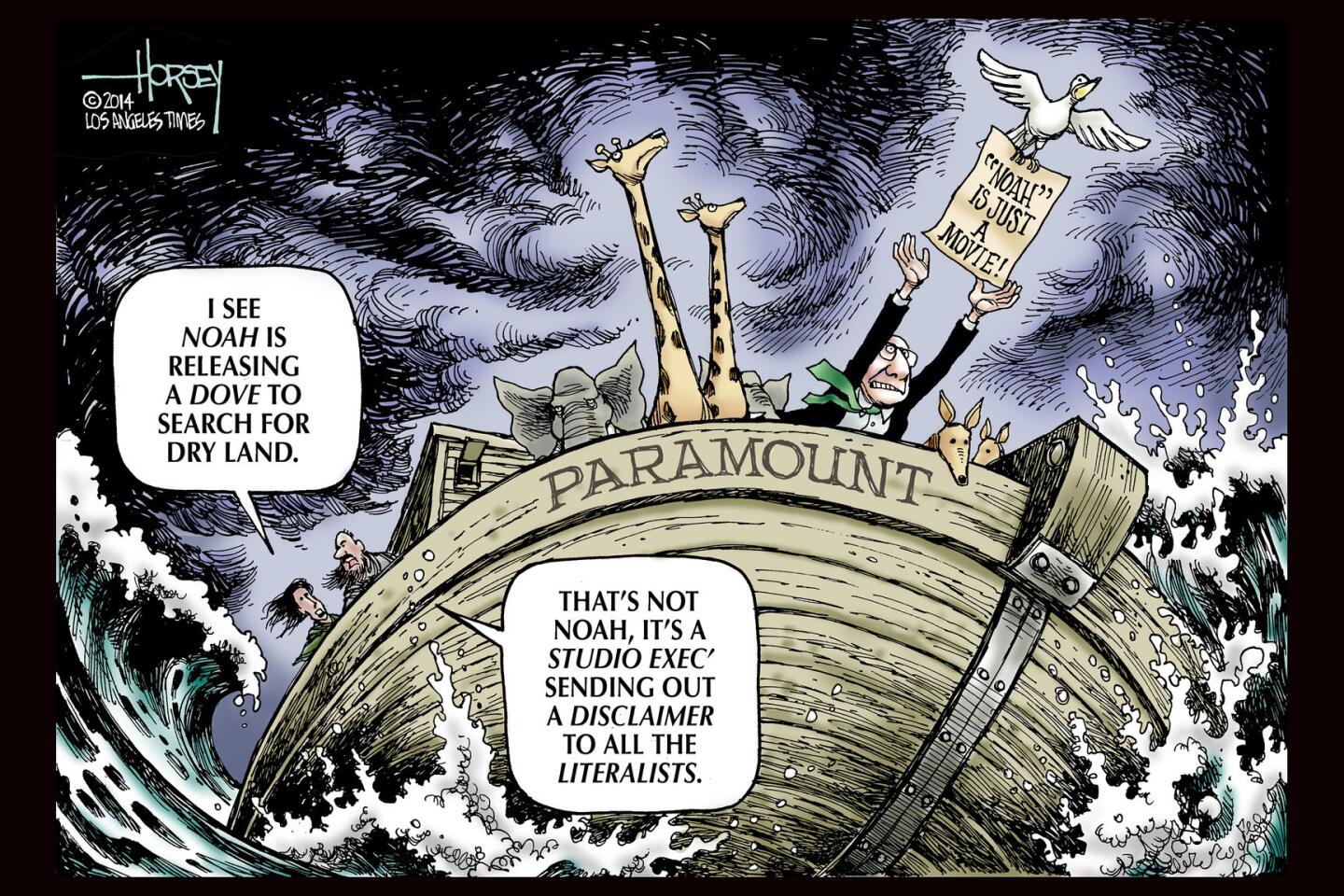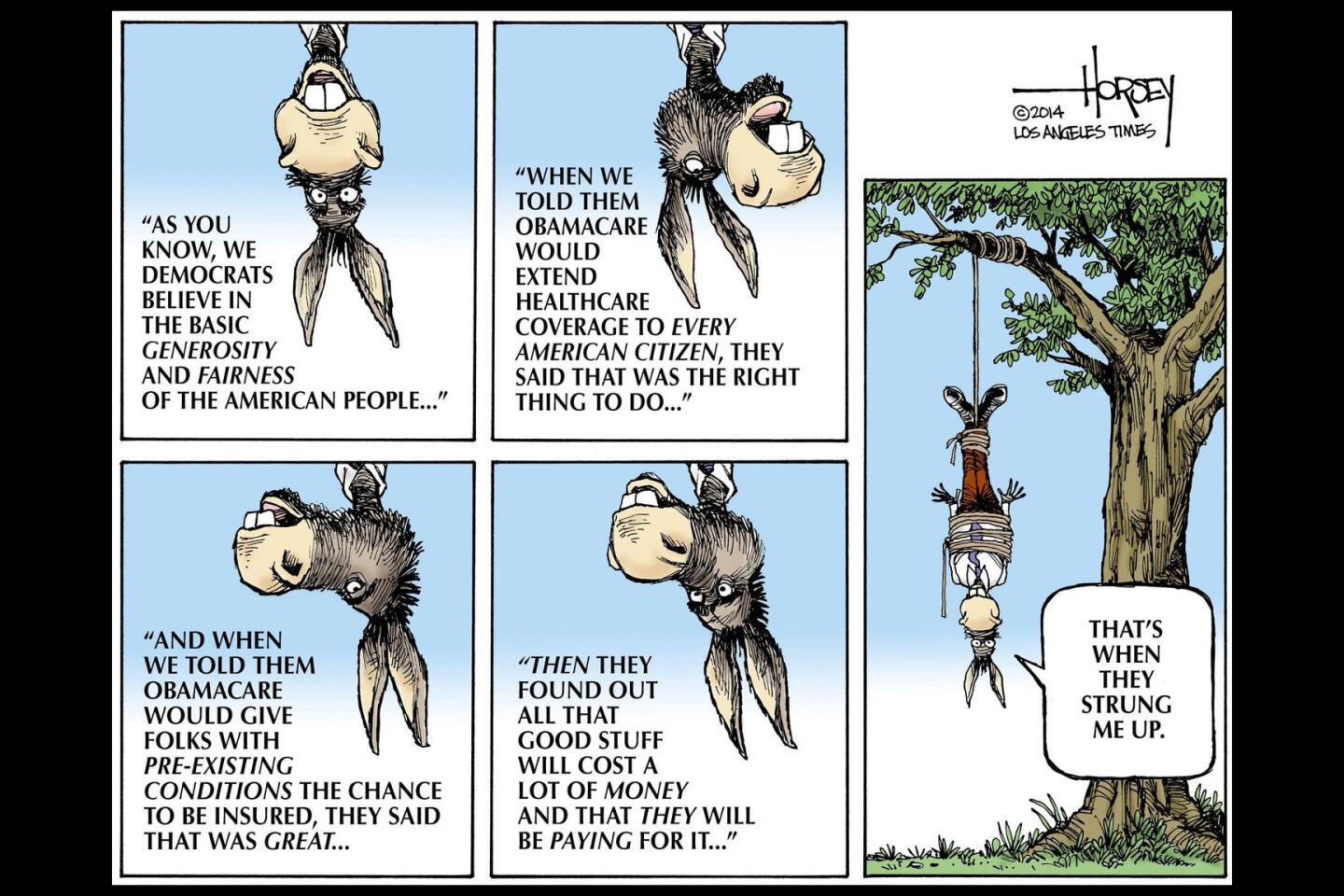Against his instincts, Trump makes Afghanistan war his own
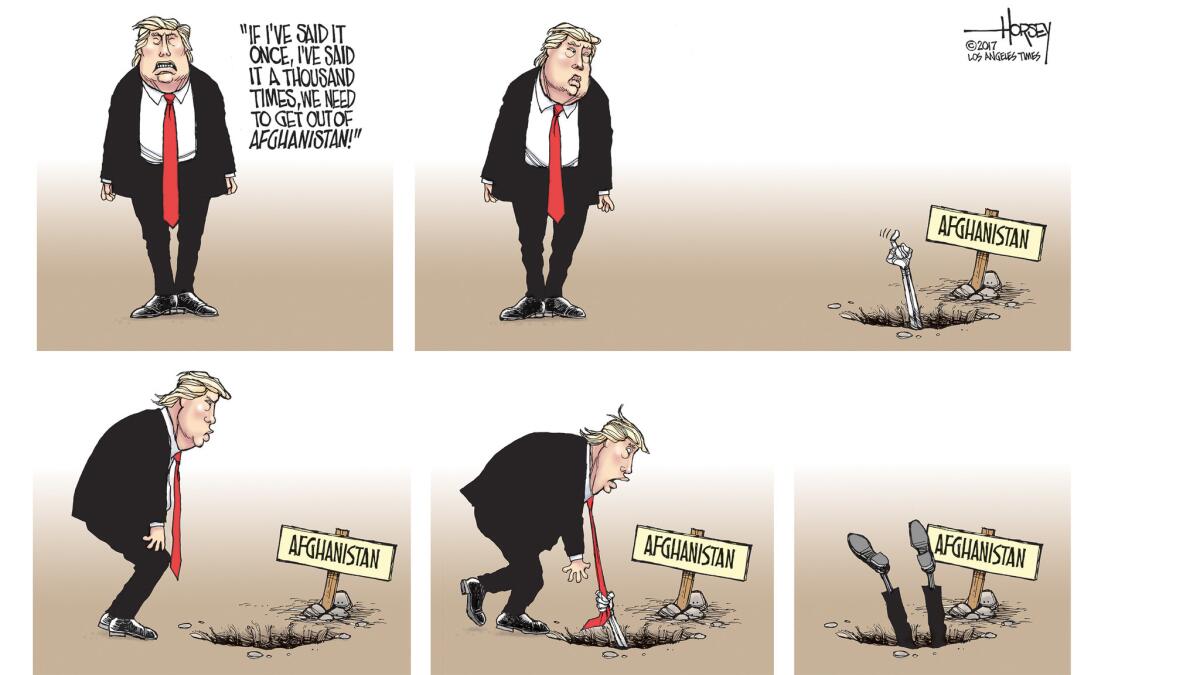
- Share via
In a speech to the nation Monday night, President Trump committed to keeping American troops fighting in Afghanistan for an indefinite time to come, thereby abandoning one of his longest-held political positions.
As a private citizen and as a presidential candidate, Trump repeatedly said it was time to end U.S. involvement in a war that began less than a month after the terrorist attacks on Sept. 11, 2001. Commenting on Twitter in 2012, he said, “Afghanistan is a complete waste. Time to come home!” In 2013, he tweeted, “I agree with Pres. Obama on Afghanistan. We should have a speedy withdrawal.”
Now, though, after what he described as months of consultation with generals and Cabinet members, the president has reversed his position and intends to keep U.S. forces on the battlefields of Afghanistan until the enemy is defeated.
“Our troops will fight to win,” Trump said in his speech. “We will fight to win. From now on, victory will have a clear definition. Attacking our enemies, obliterating ISIS, crushing Al Qaeda, preventing the Taliban from taking over Afghanistan and stopping mass terror attacks against America before they emerge.”
Trump insisted the approach he has adopted is sharply different from that of his predecessors in the White House and, in some ways, it is. He was unusually critical of America’s nominal ally Pakistan for allowing havens for the Taliban within its territory, and he broached the very provocative idea of bringing Pakistan’s mortal enemy India into an economic development plan for Afghanistan.
Trump also declared the U.S. was finished with trying to turn foreign countries into Western-style democracies.
“We are not nation-building again,” he said. “We are killing terrorists.”
Some of the ideas he presented as new, however, were anything but novel. He made a big deal out of a shift toward a policy based on “conditions on the ground, not arbitrary timetables.” His administration will not be the first to take that approach; it mirrors the stance taken by President George W. Bush and is not much different from the policy President Obama adopted toward the end of his time in office.
Trump also said a “fundamental pillar of our new strategy is the integration of all instruments of American power — diplomatic, economic, and military — toward a successful outcome.” Both Bush and Obama gave that a try. Trump’s ability to do it better is highly questionable, given that he has hollowed out the State Department with staff reductions, failures to fill key positions and a proposed 30% budget cut.
Whether Trump has put together a coherent strategy or not, the remarkable thing is how quickly this supposed swamp-cleaning, anti-establishment, quasi-isolationist outsider has chosen to adopt a strategy that should please the neoconservative foreign policy experts who, for decades, have held significant sway over the American role in international affairs. Anyone who voted for Trump believing he would bring the troops home and avoid entanglements in distant lands will be deeply disappointed.
With his new position on Afghanistan, Trump is falling in line behind past presidents of both parties who have discovered it is not easy for the leader of a superpower to escape from participation in the world’s conflicts. And, like Lyndon Johnson and Richard Nixon, he may have already learned that it is politically less risky to keep a war going than to acknowledge that victory is impossible.
One day, perhaps, Americans and their leaders will stop pretending that every war is World War II with a clear enemy and an ultimate day of triumph. The conflicts of our current era are not like that. They are shadowy battles against shifting adversaries who use unconventional tactics and conceive of their struggle not in years, but in generations. In this kind of battle, a final victory is not the realistic objective. American troops in Afghanistan are like the ancient Roman soldiers stationed along the Rhine and the Danube. Their job is all about holding the line and keeping the barbarians as far from the empire’s heart as possible.
Against his own instincts, Donald Trump has chosen to defend a distant line with American blood and treasure. Afghanistan is now his war to win or lose or perpetuate until another president comes along.
Follow me at @davidhorsey on Twitter
More to Read
A cure for the common opinion
Get thought-provoking perspectives with our weekly newsletter.
You may occasionally receive promotional content from the Los Angeles Times.

